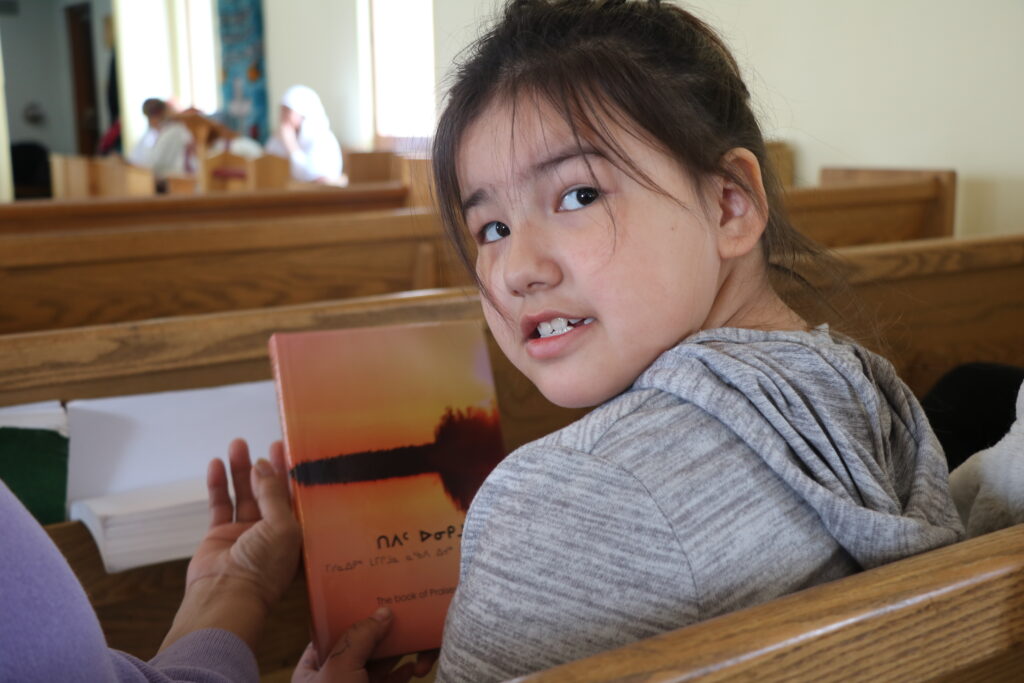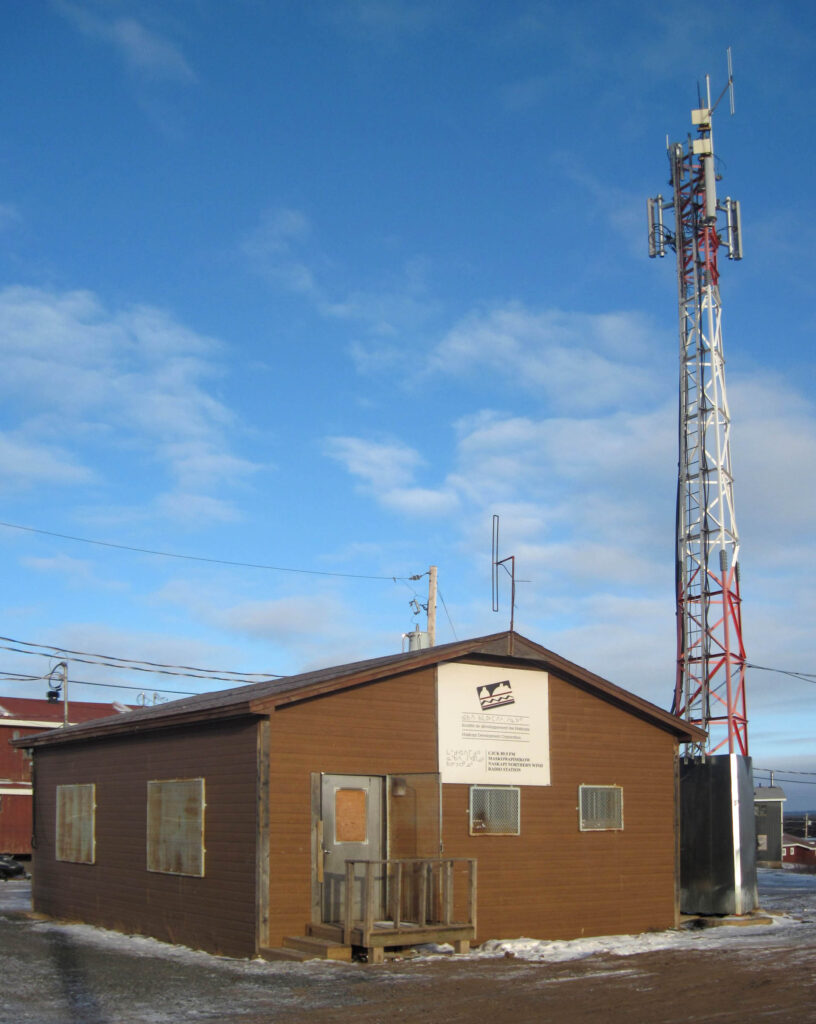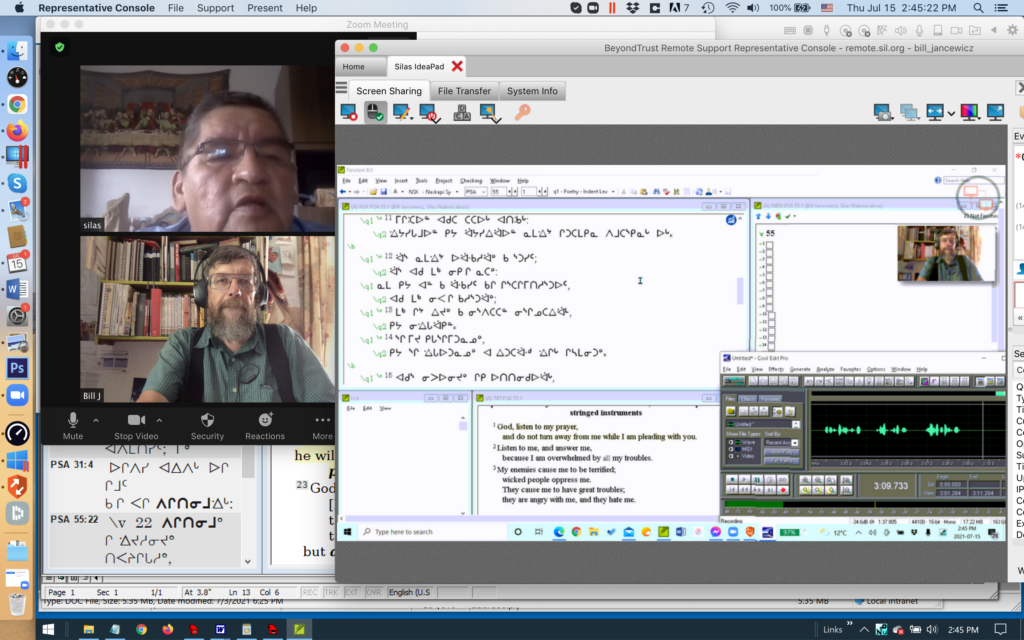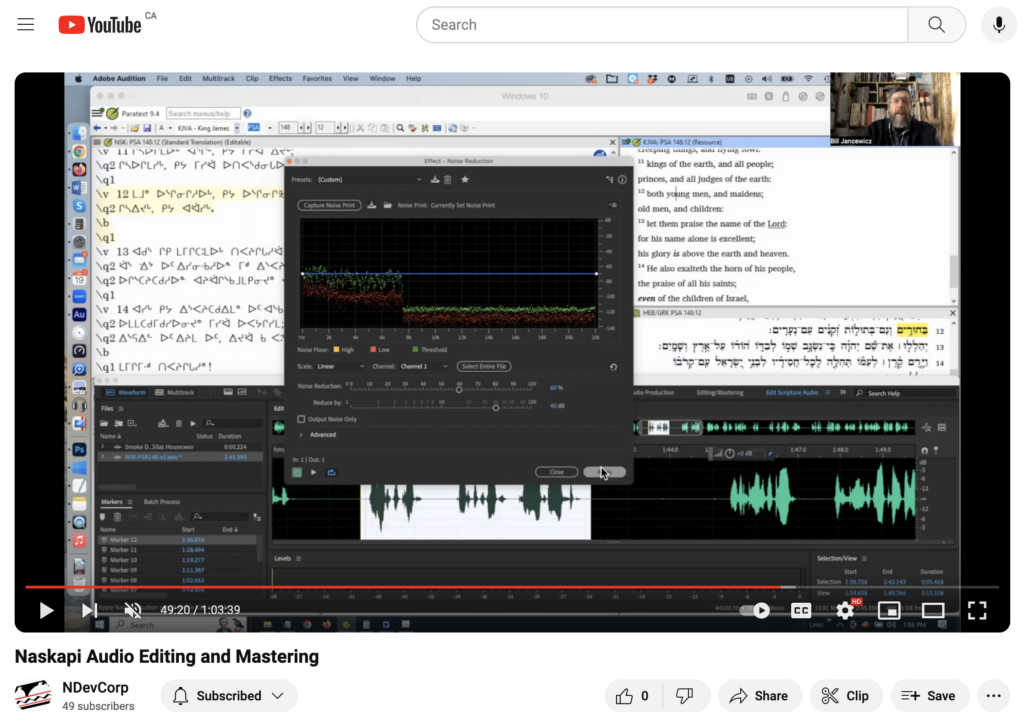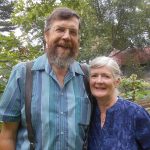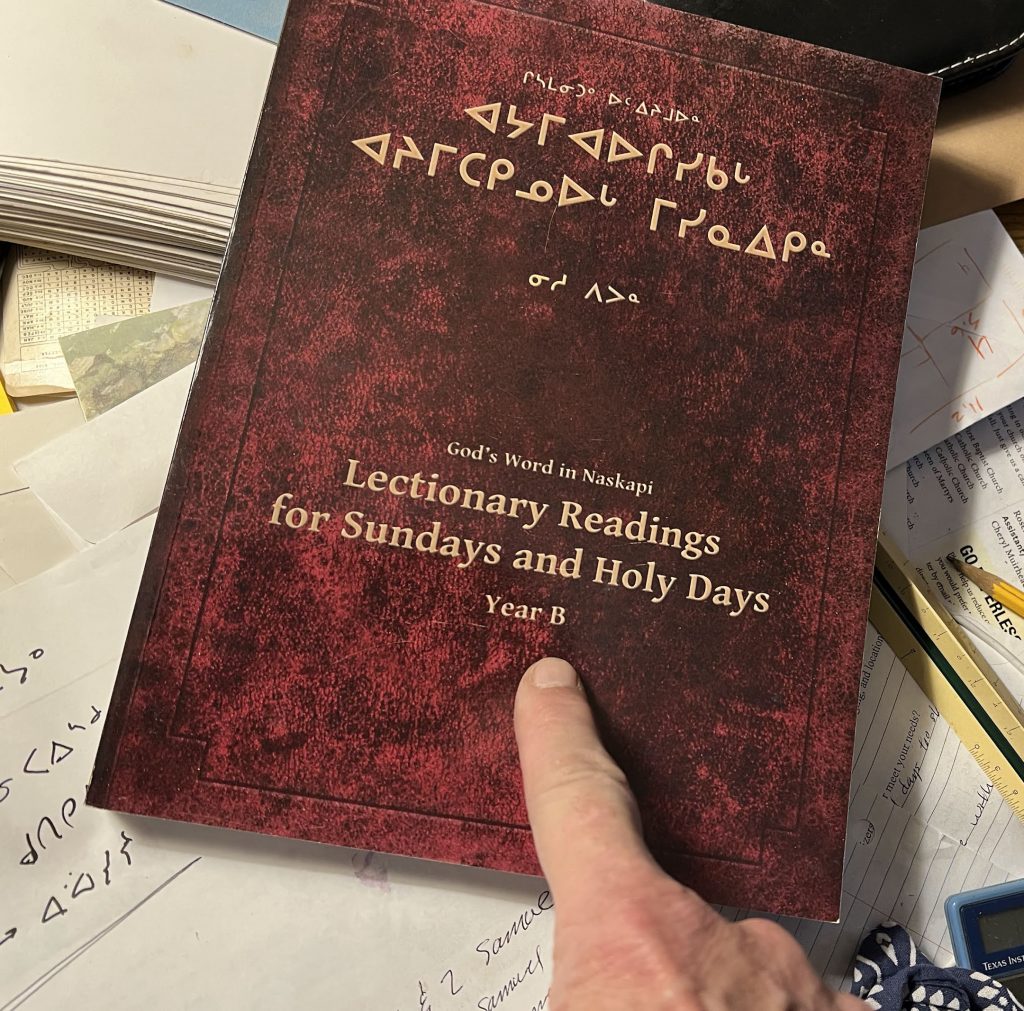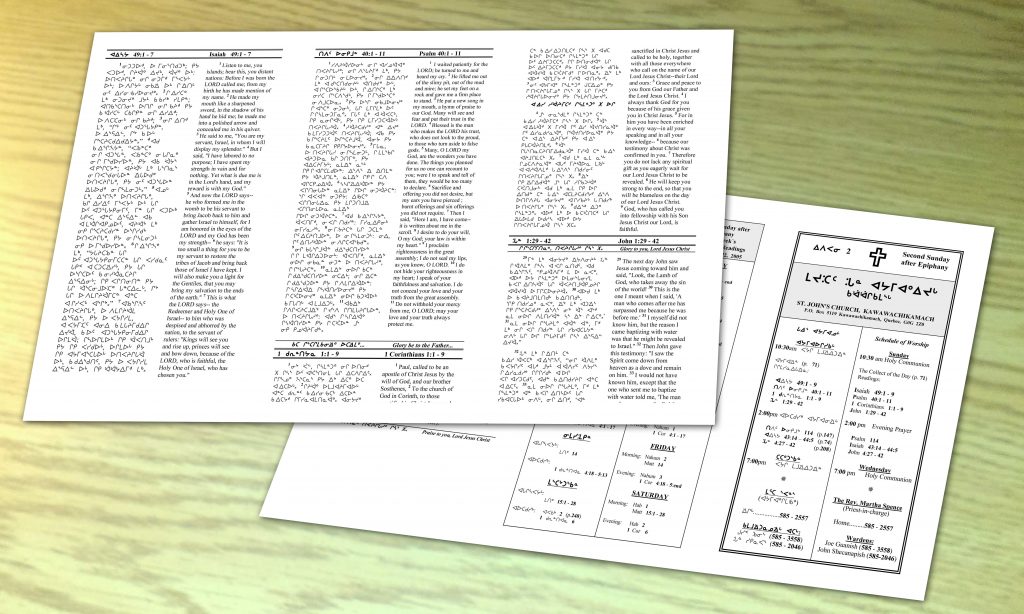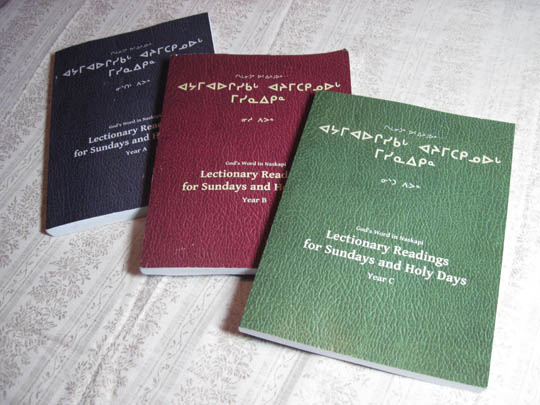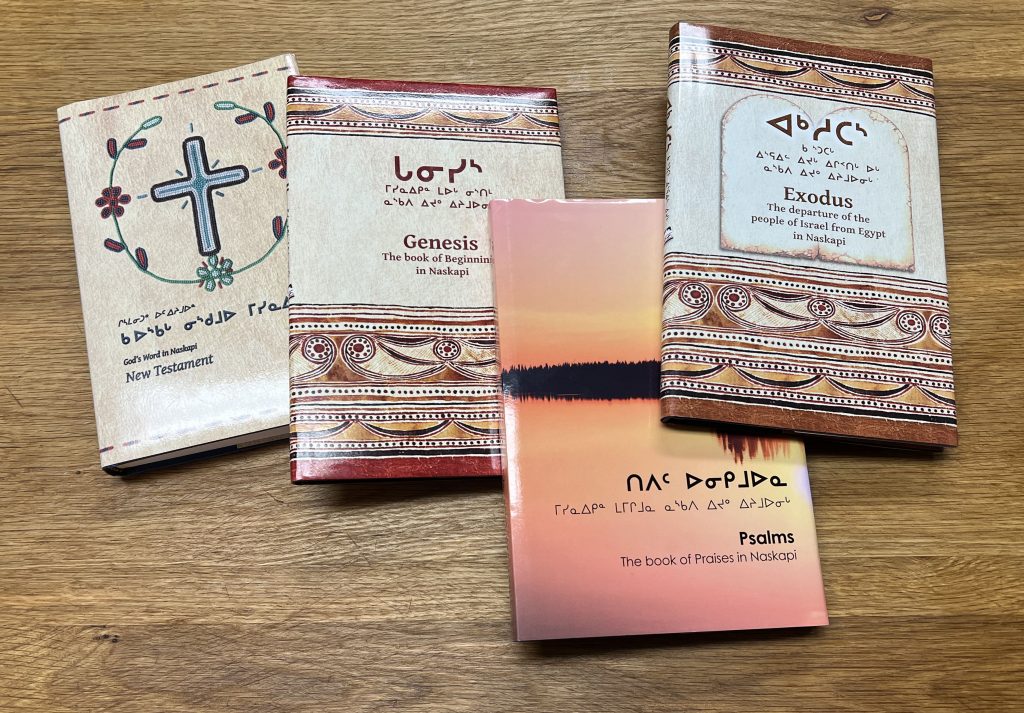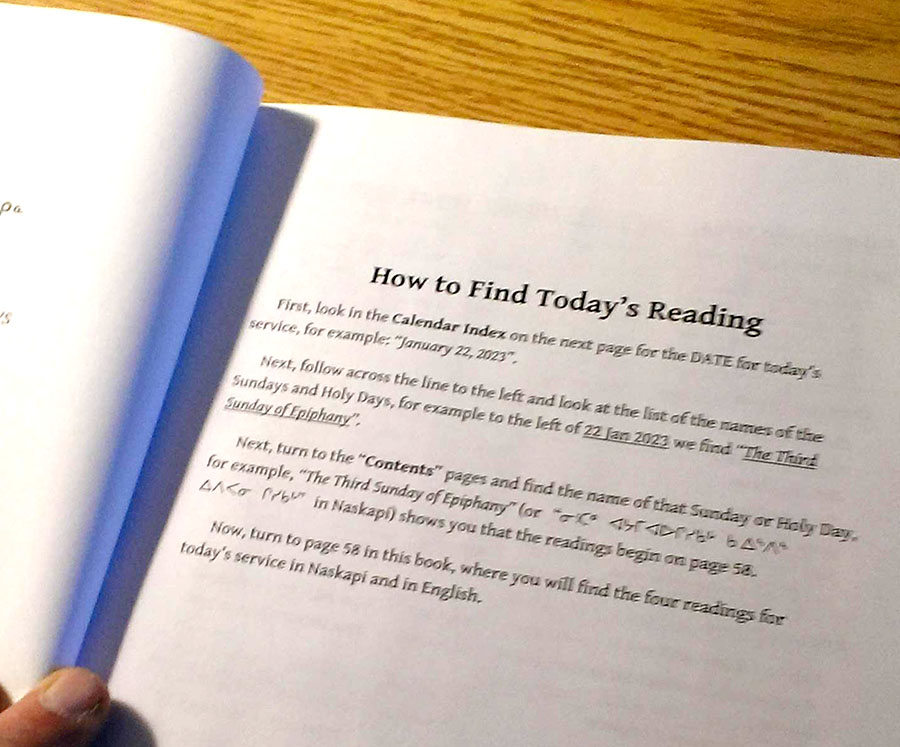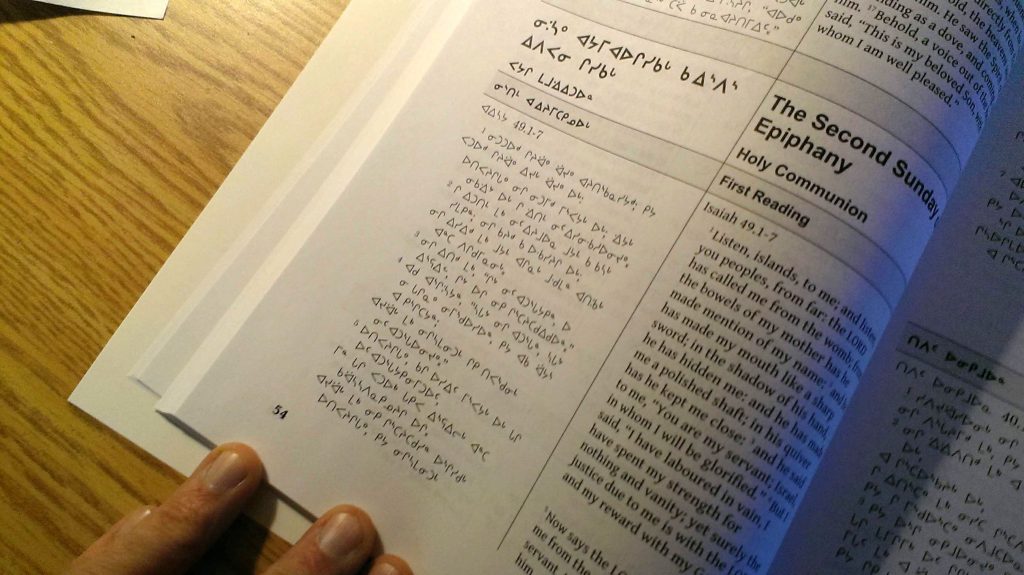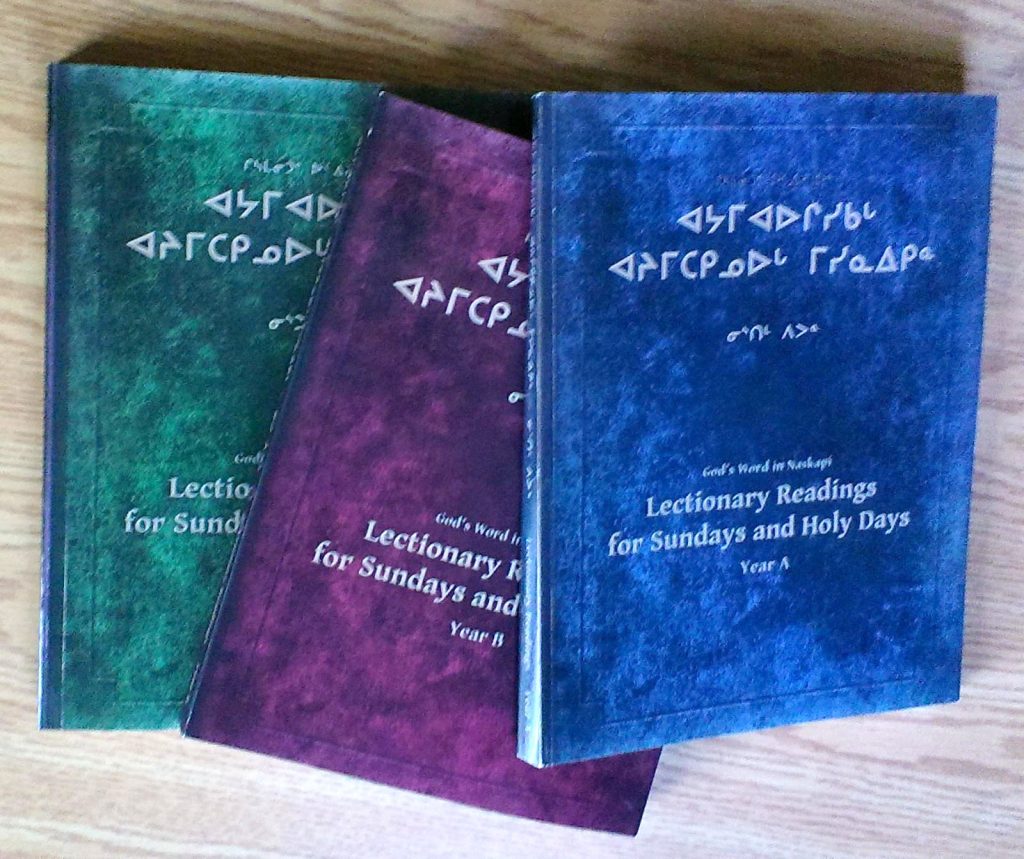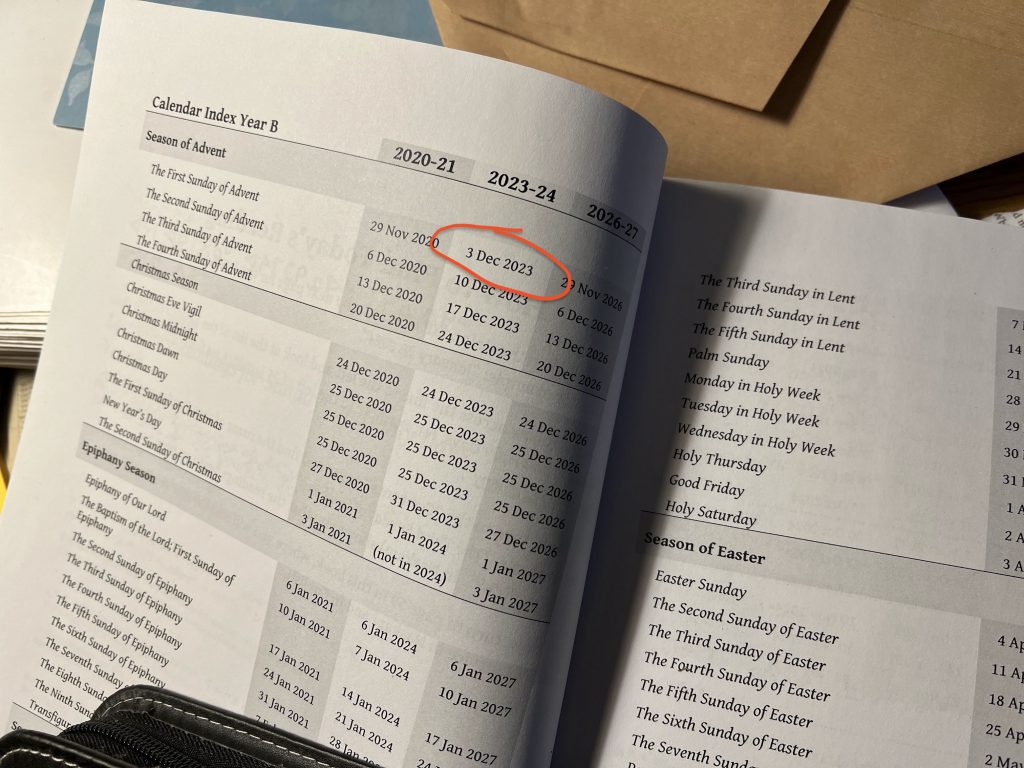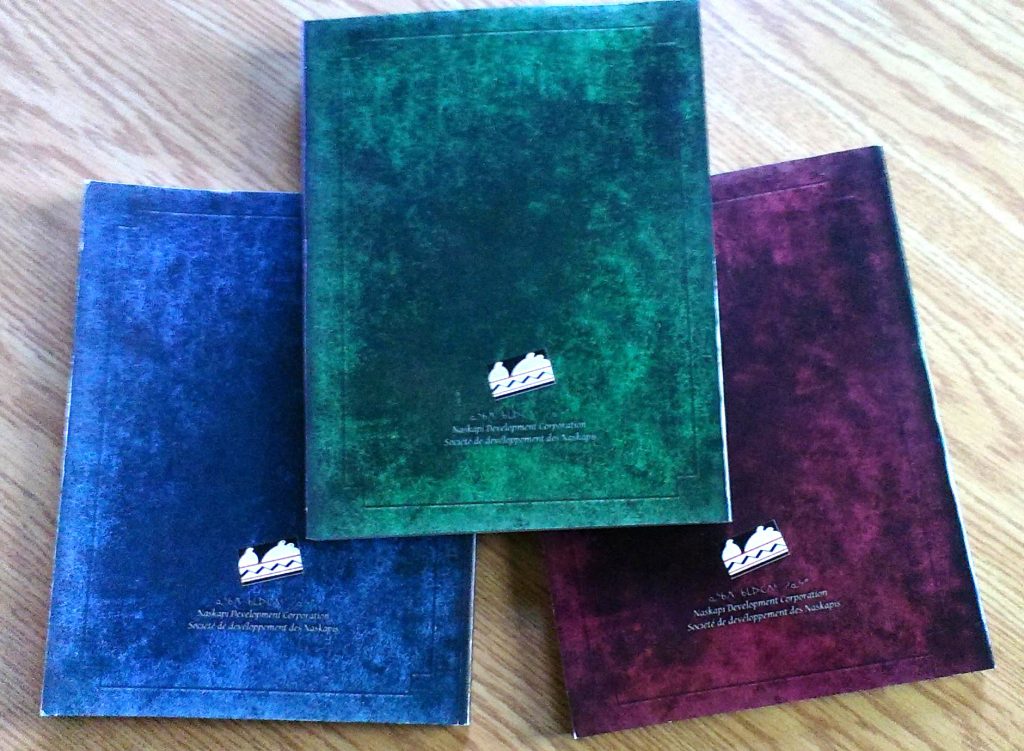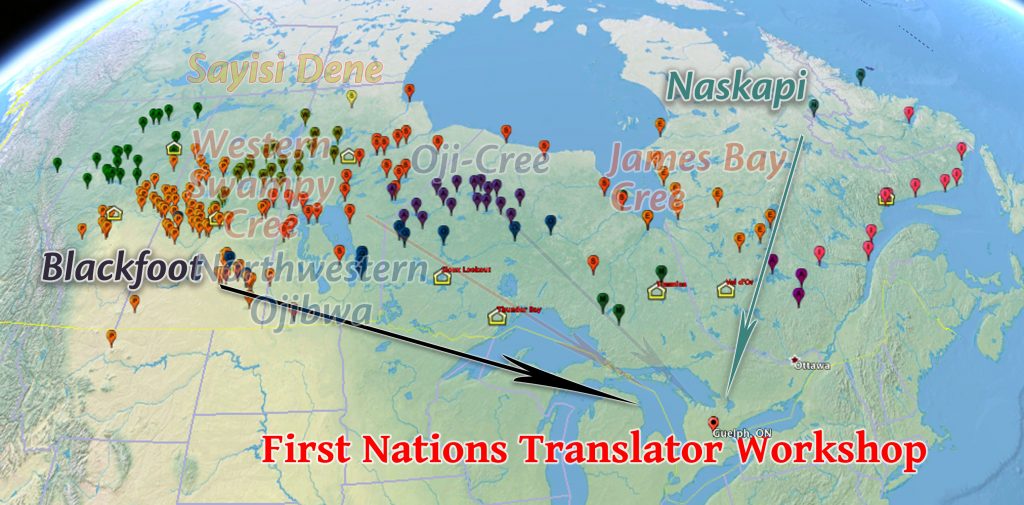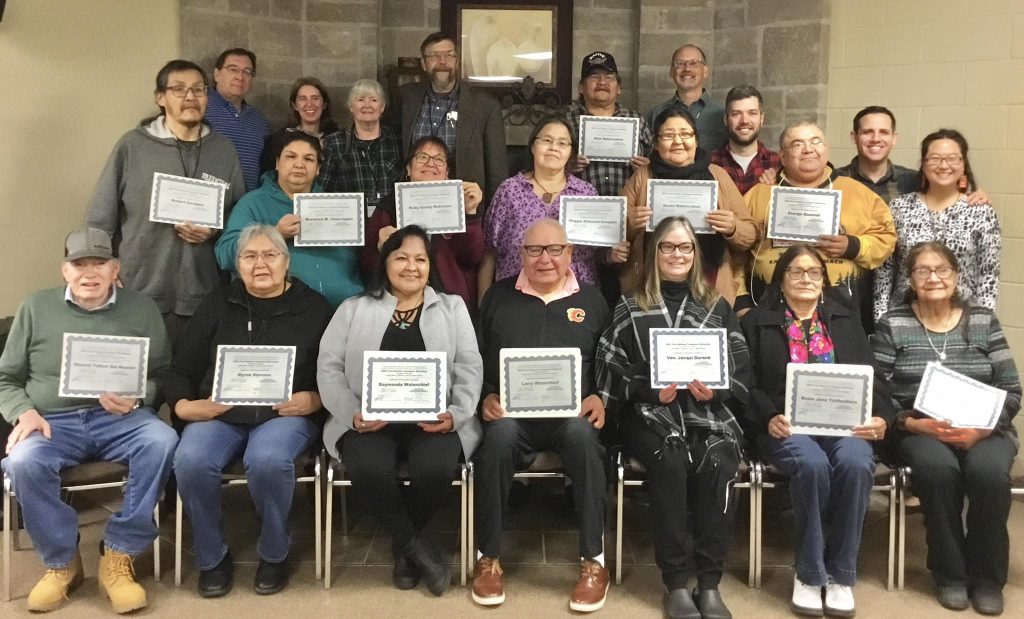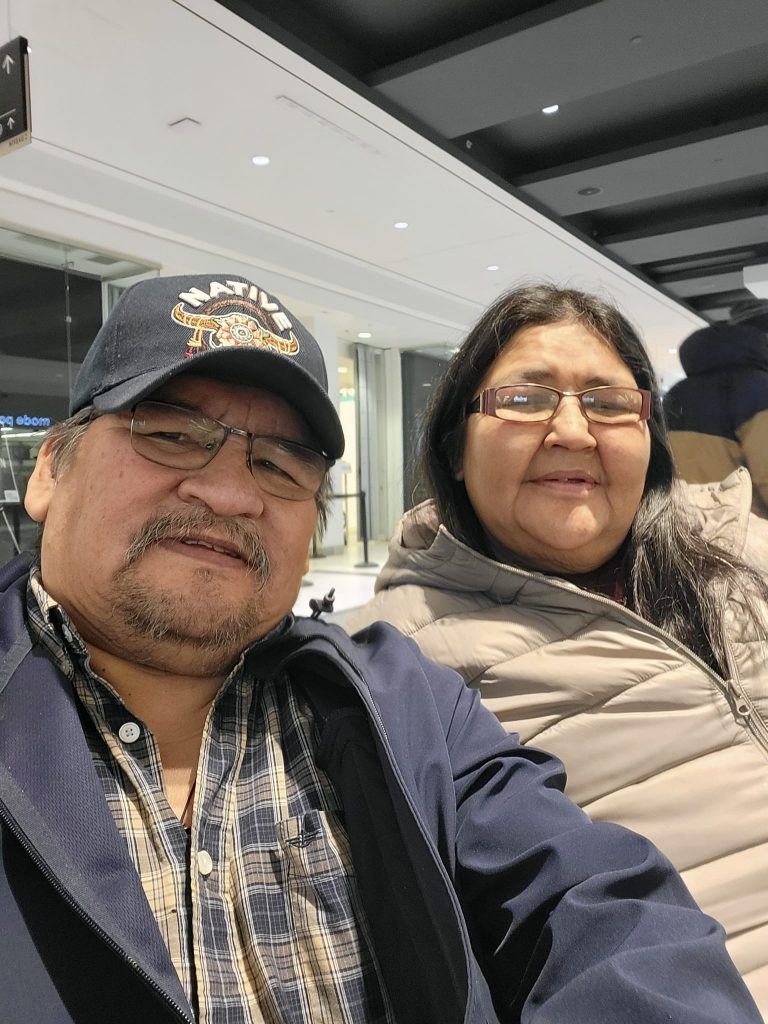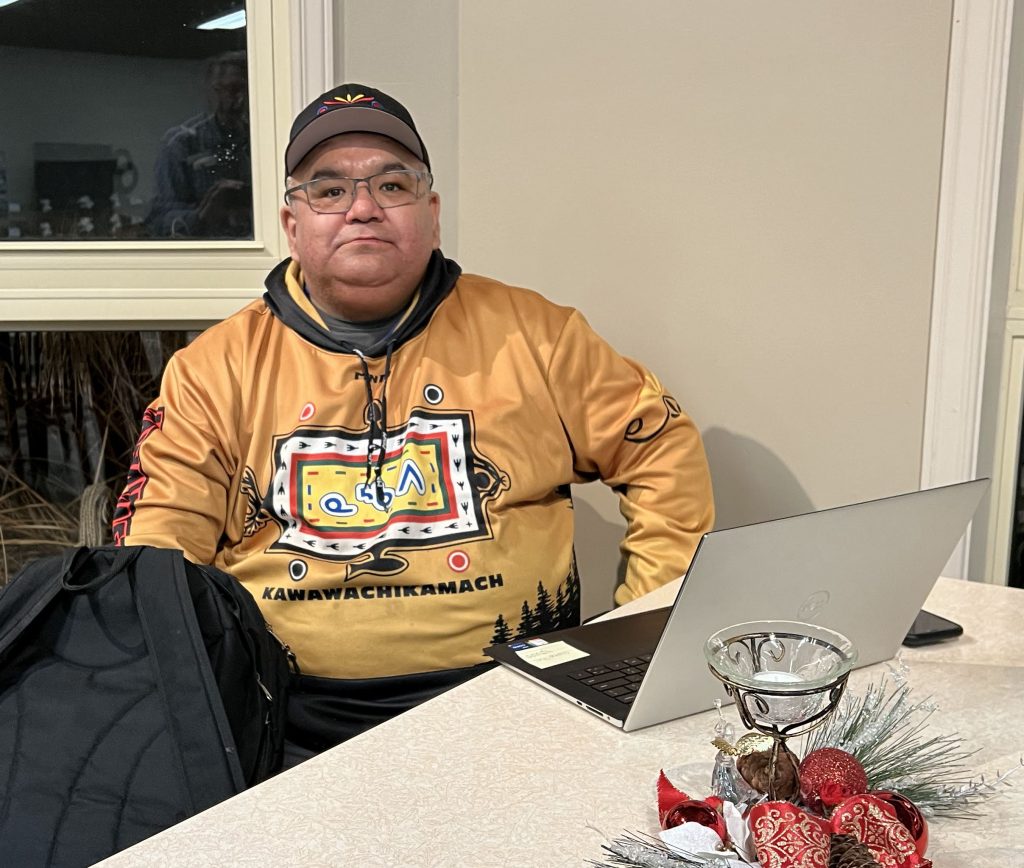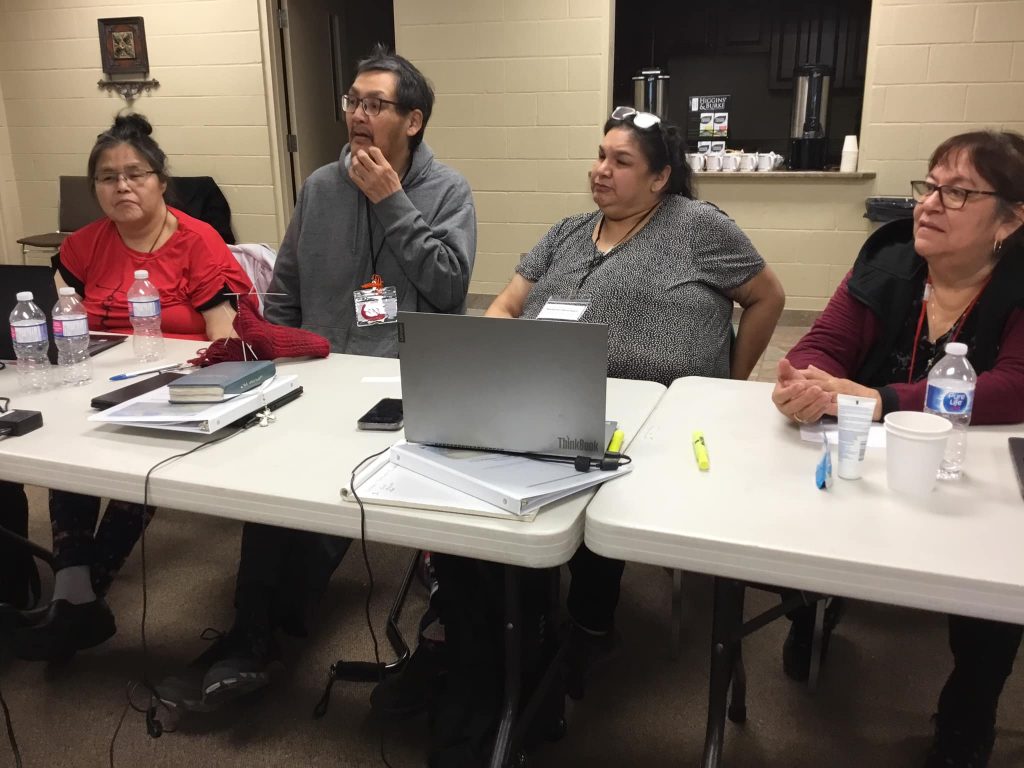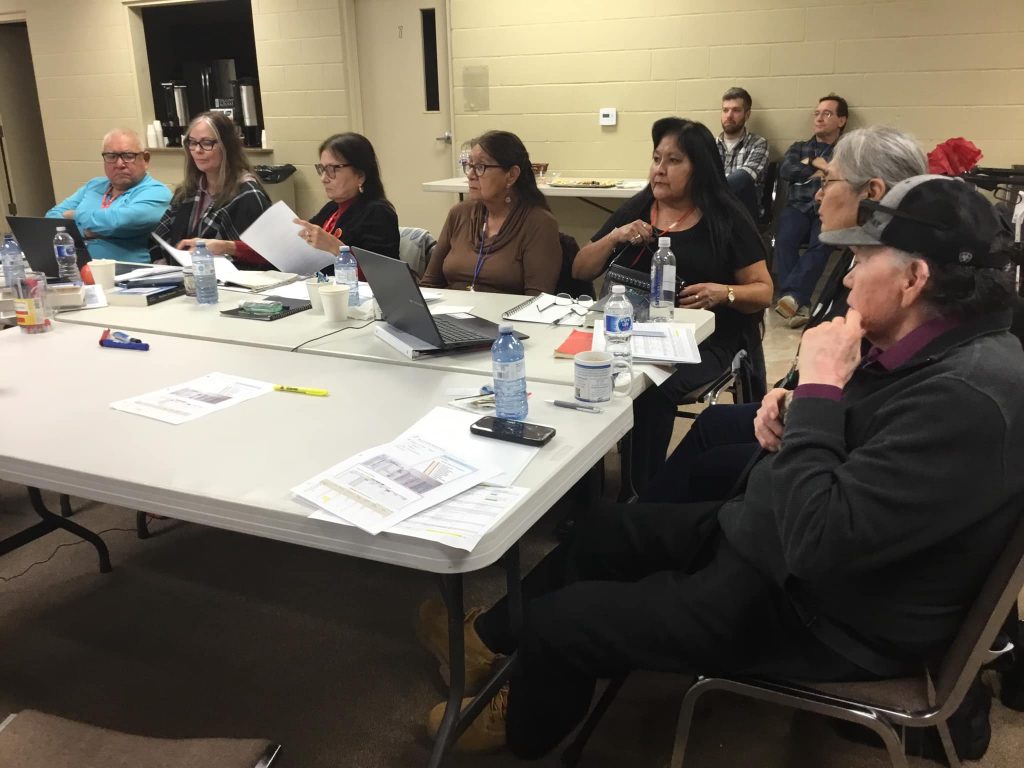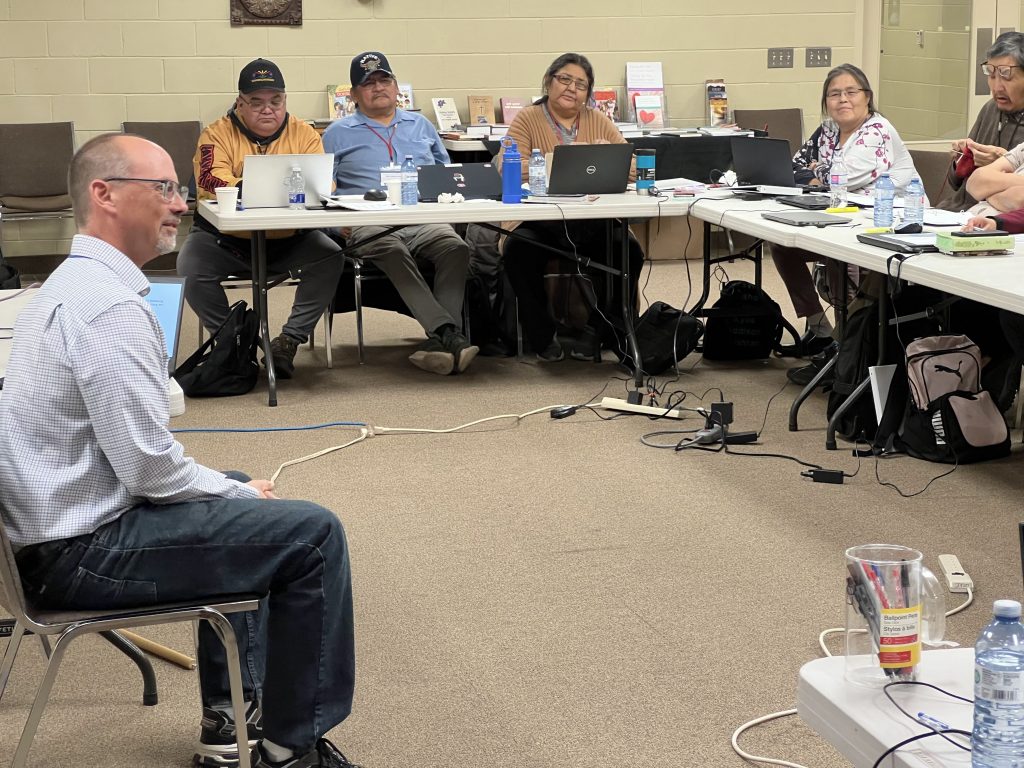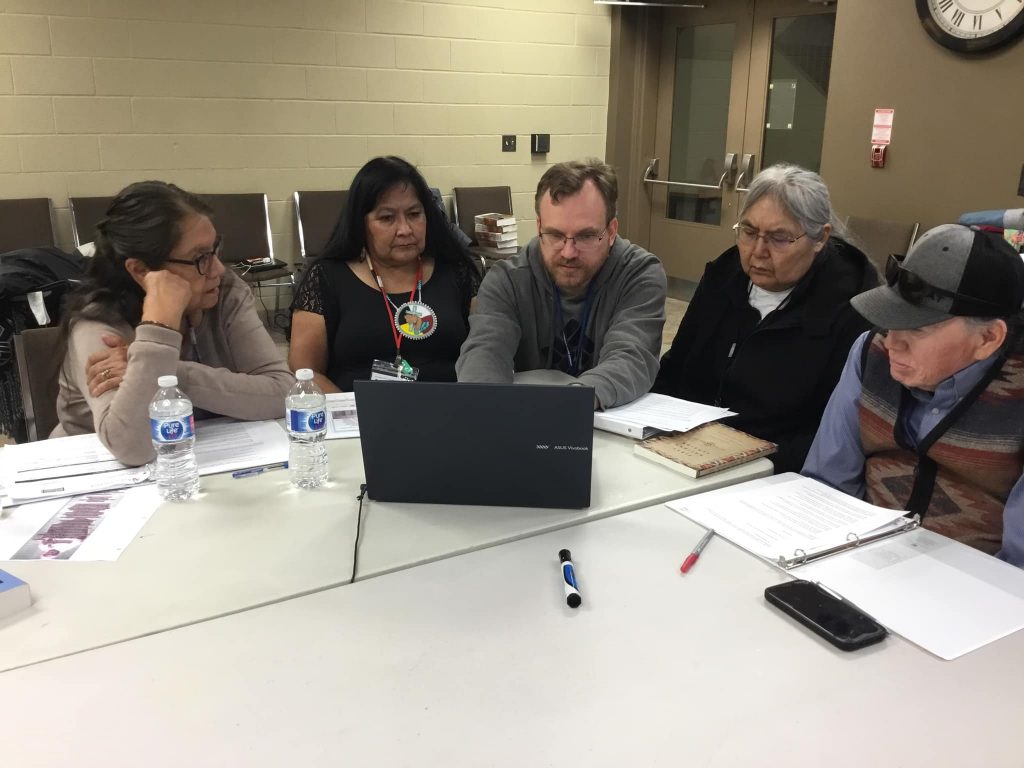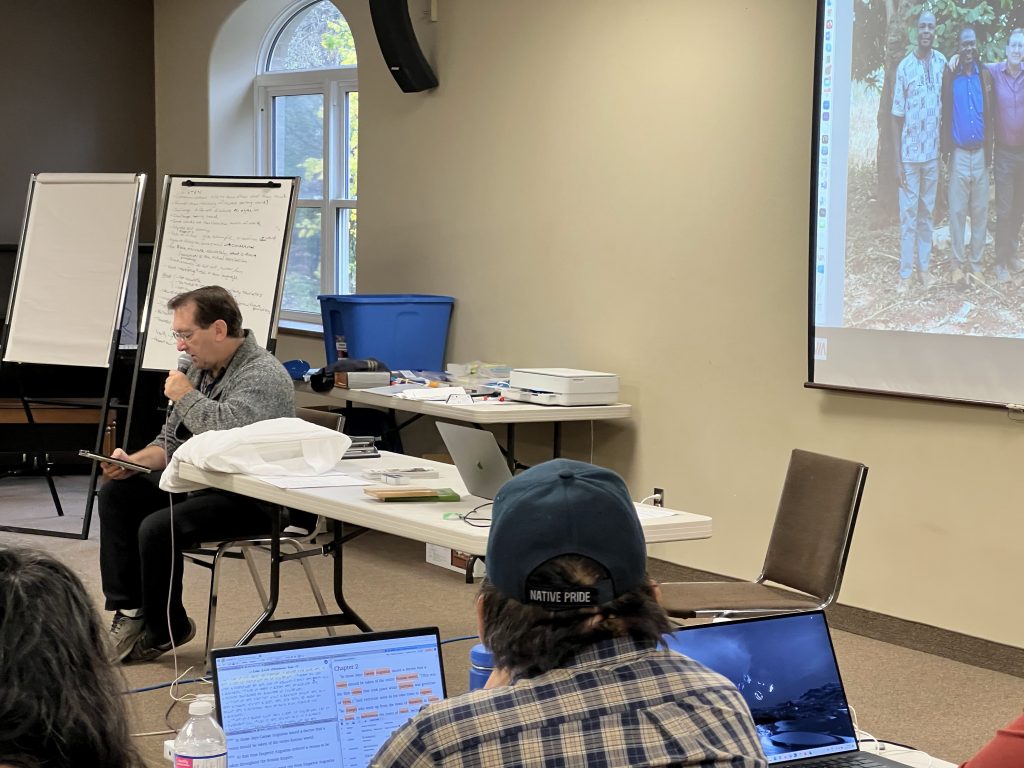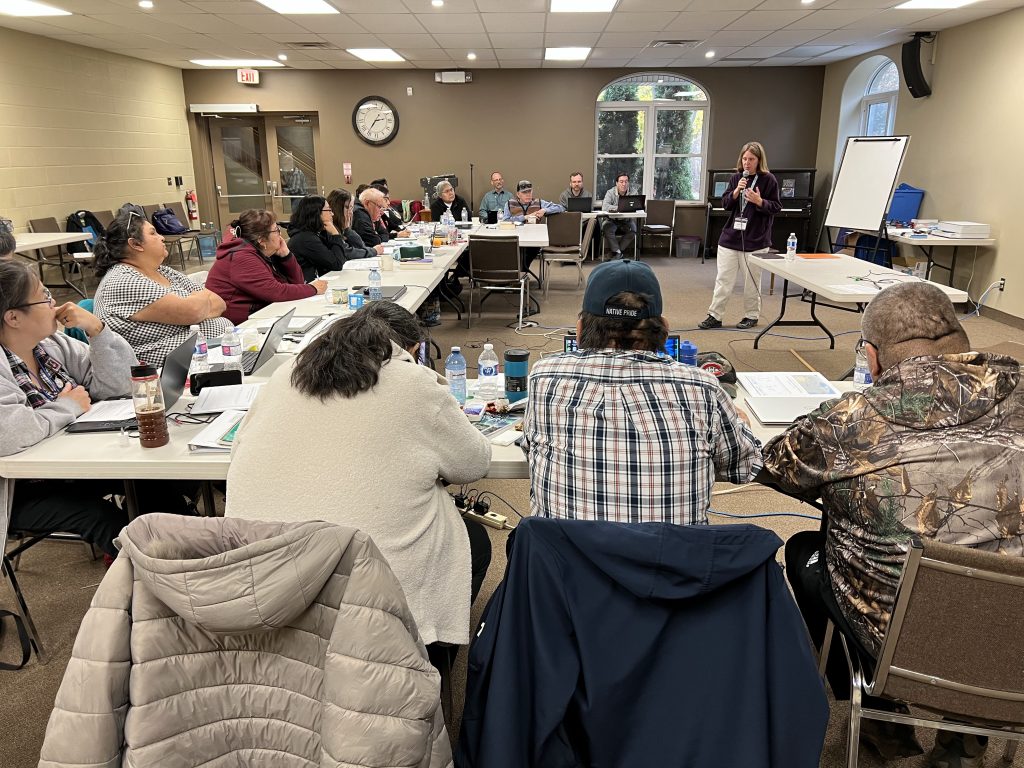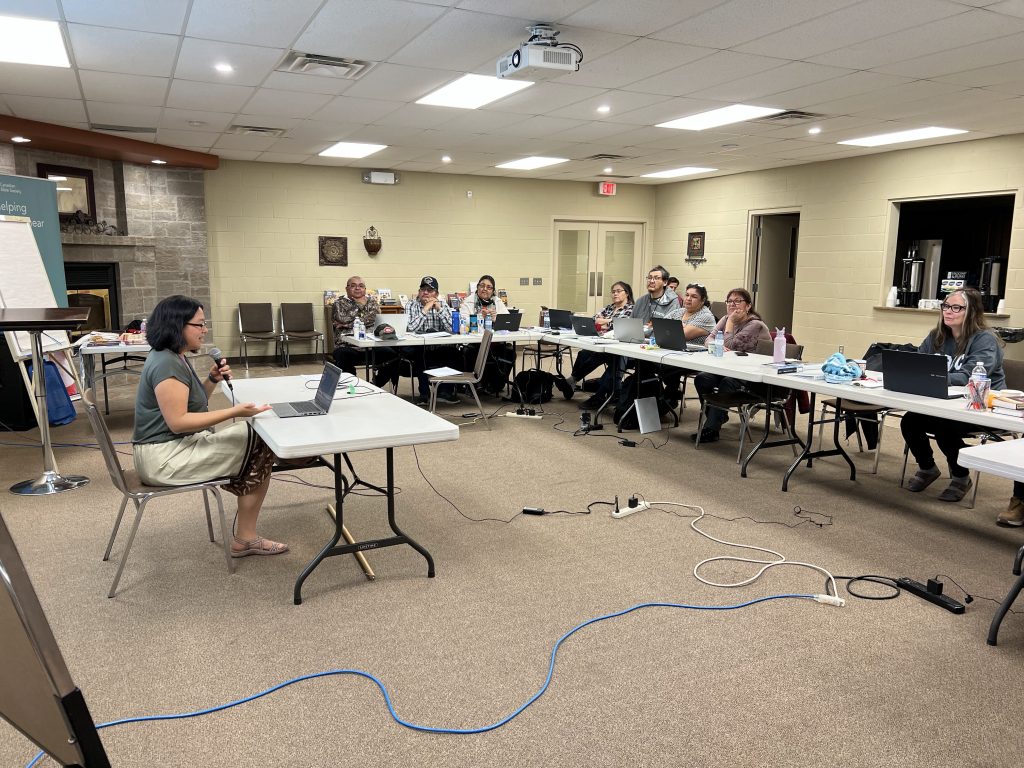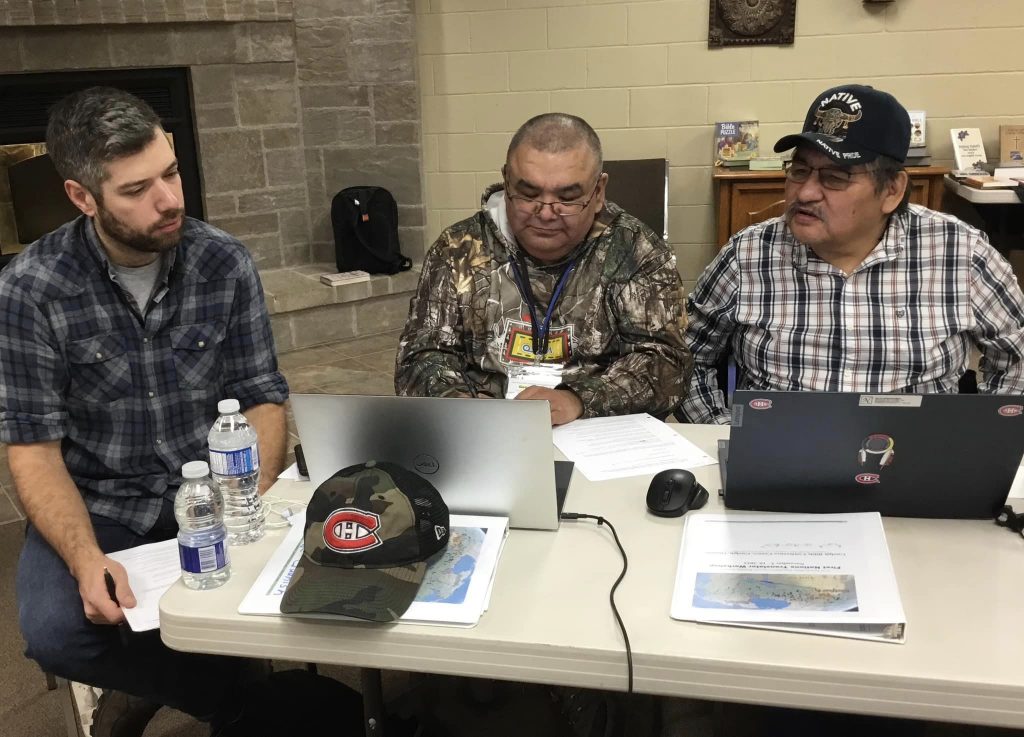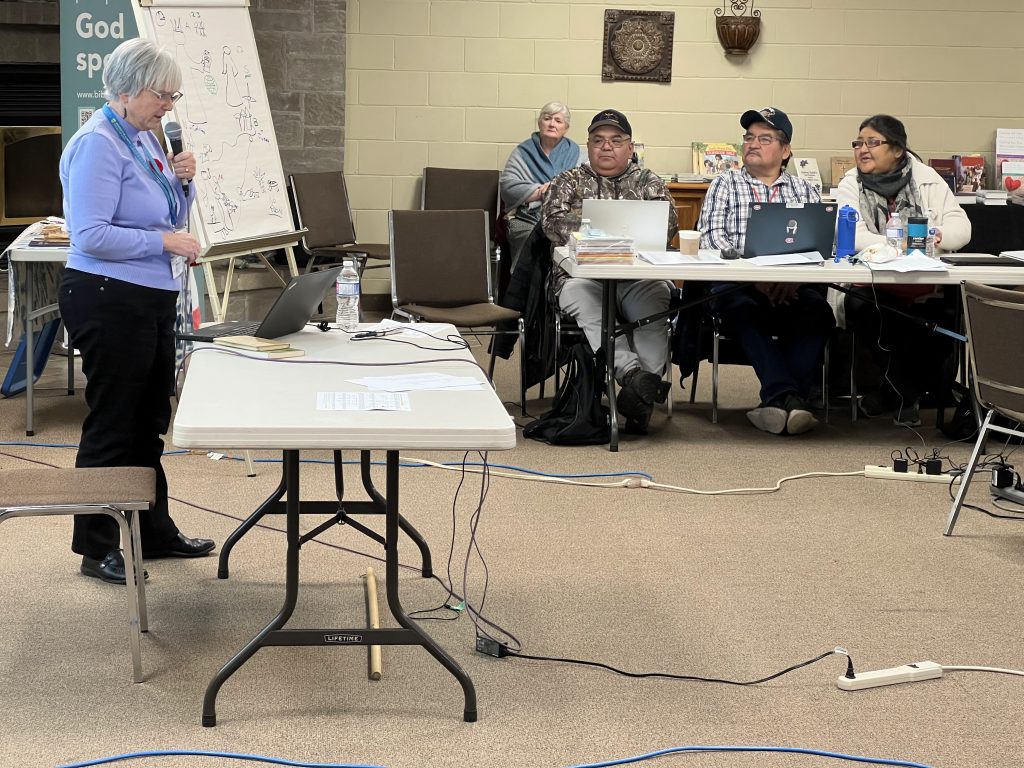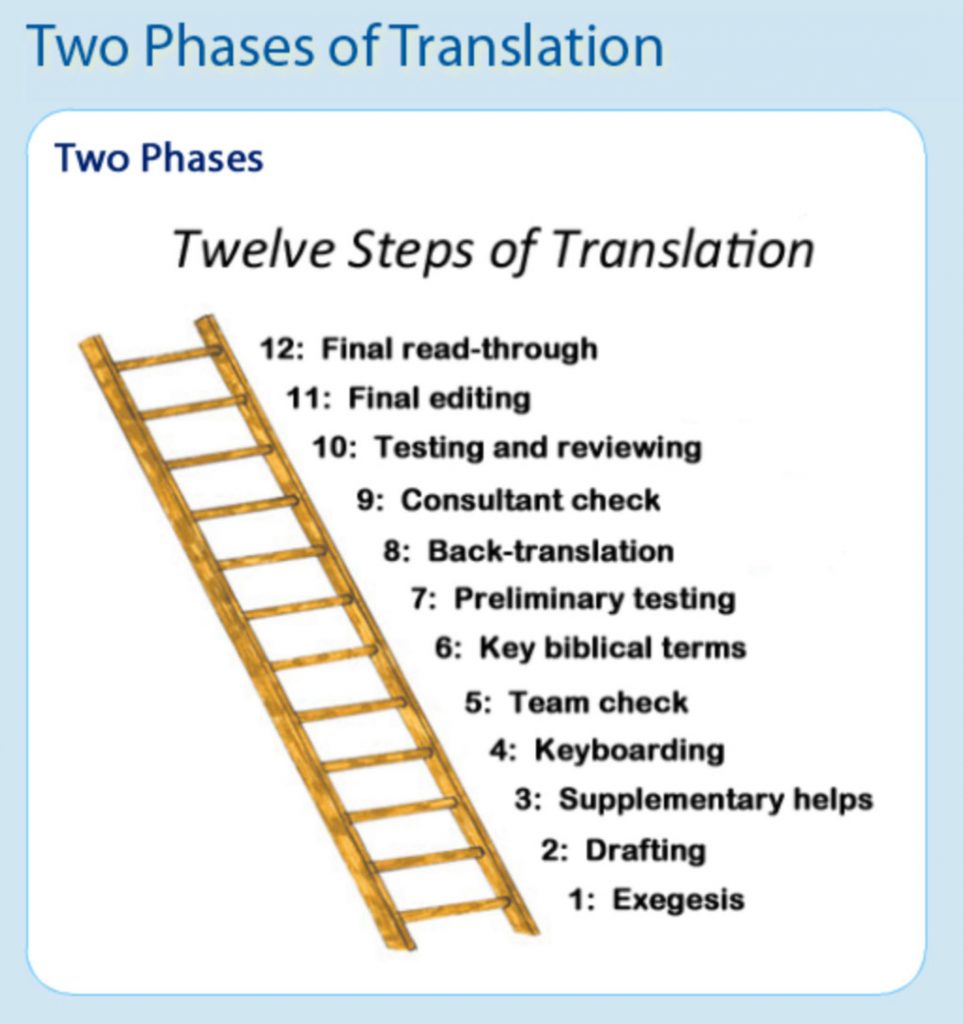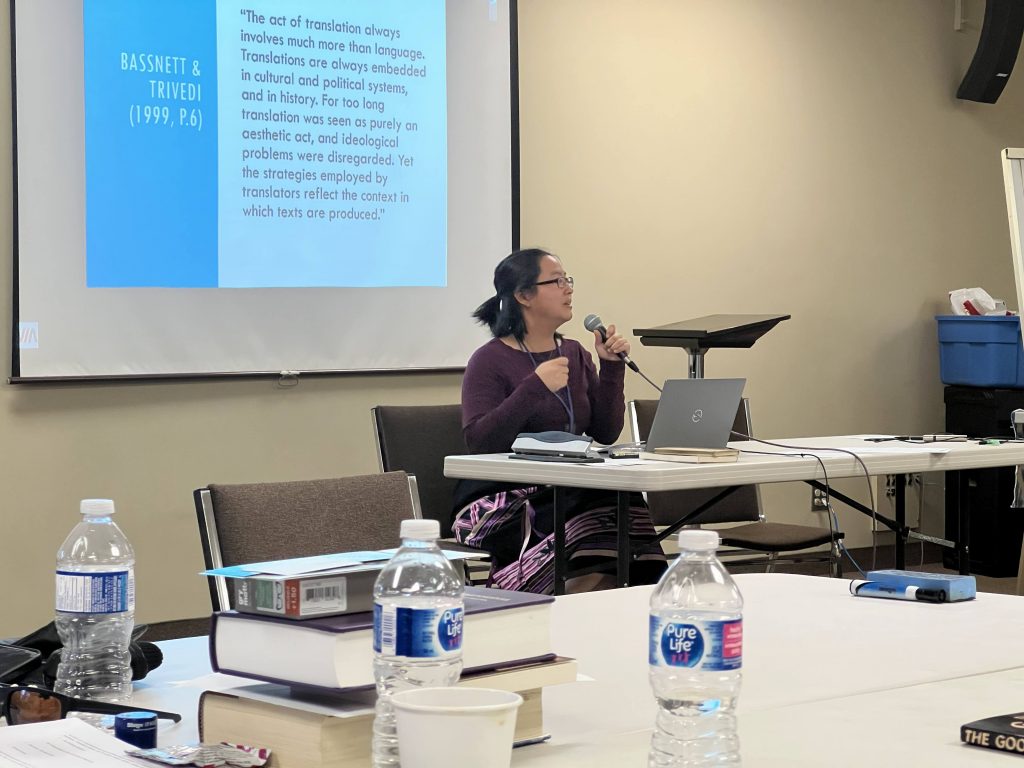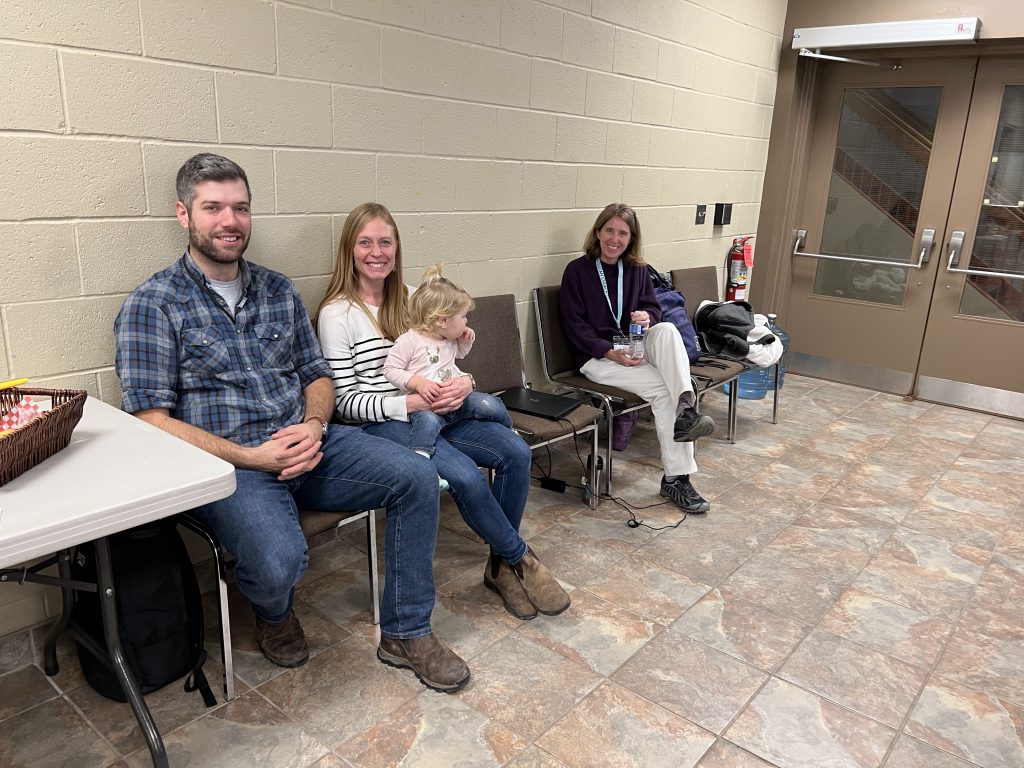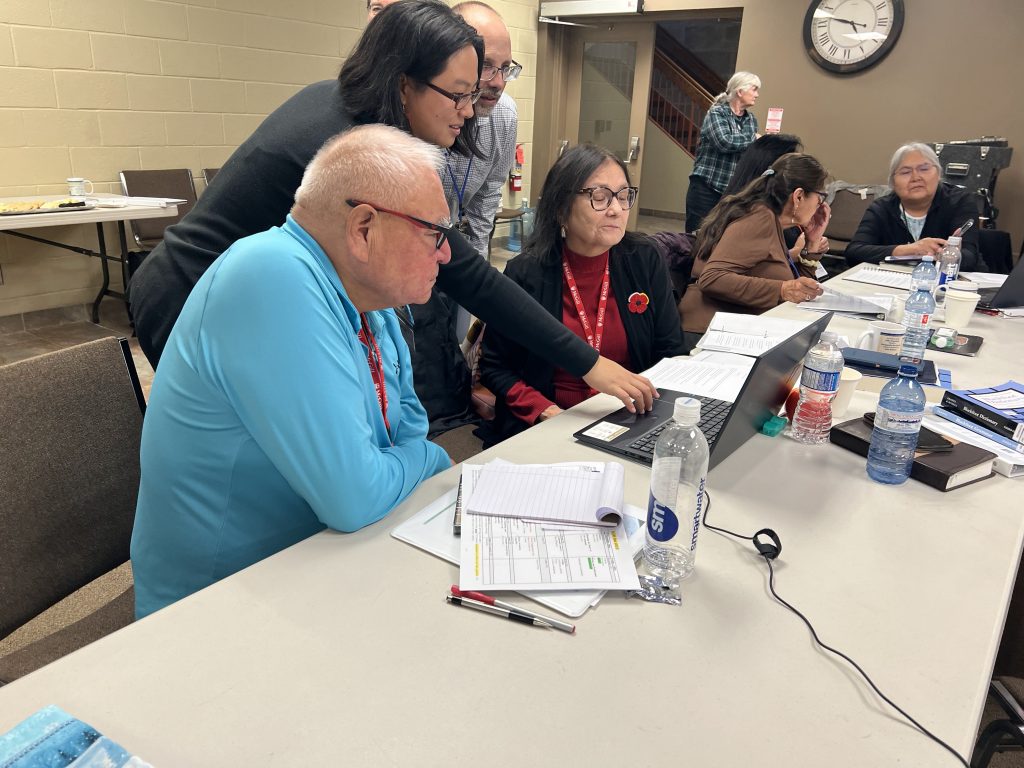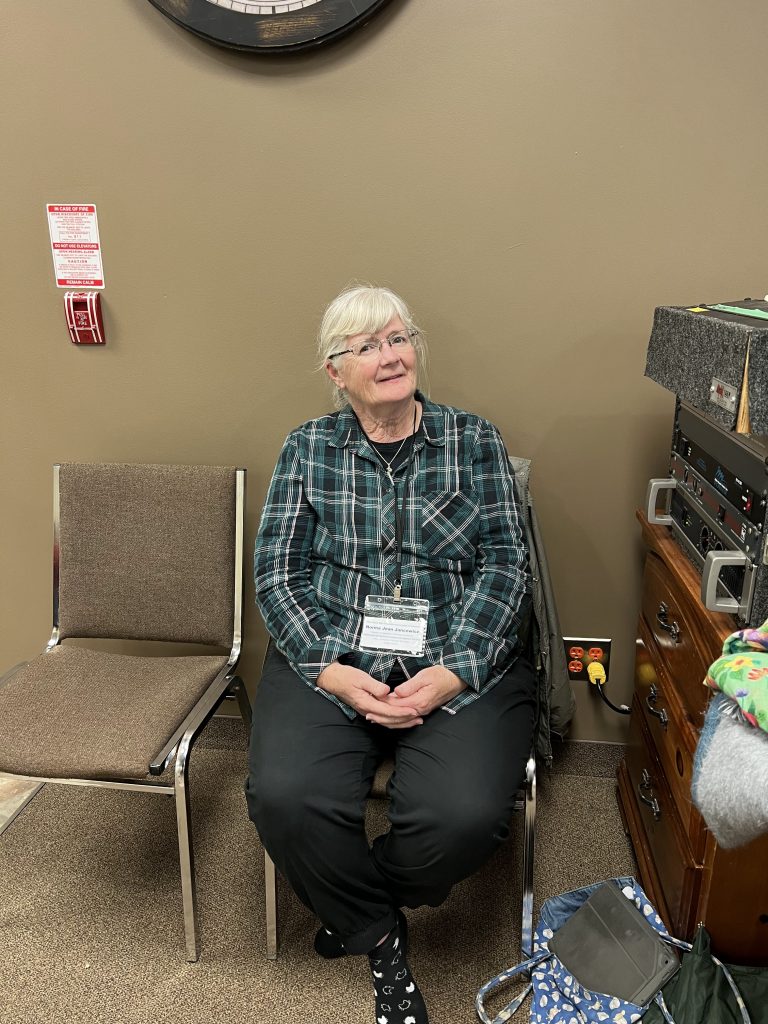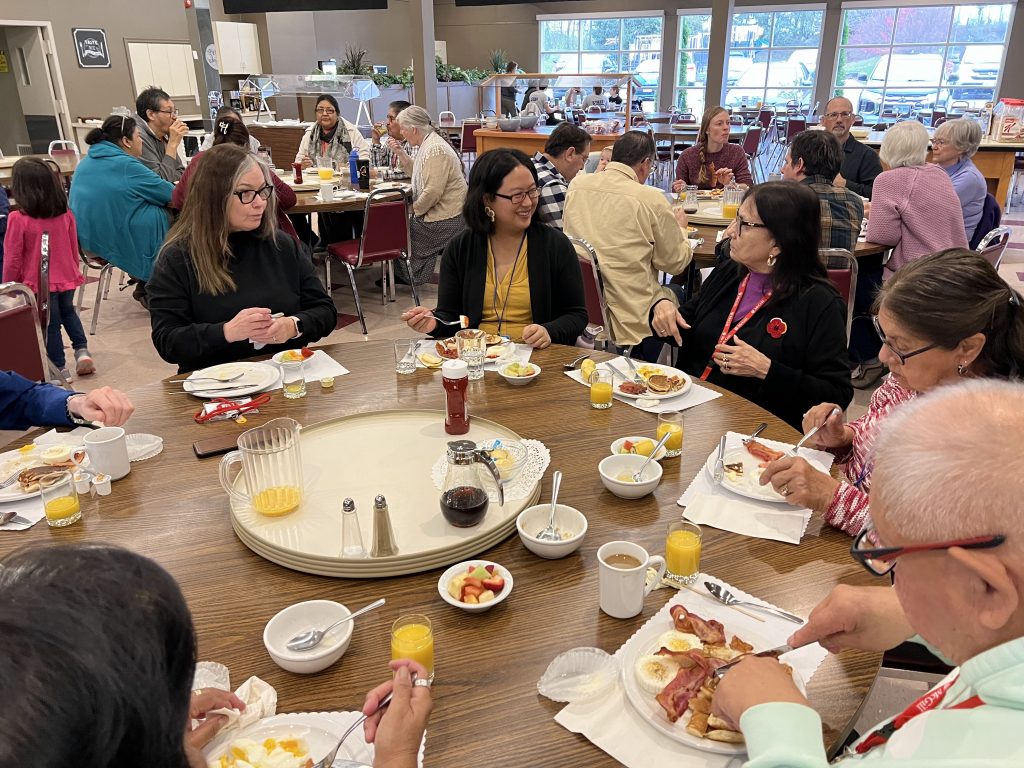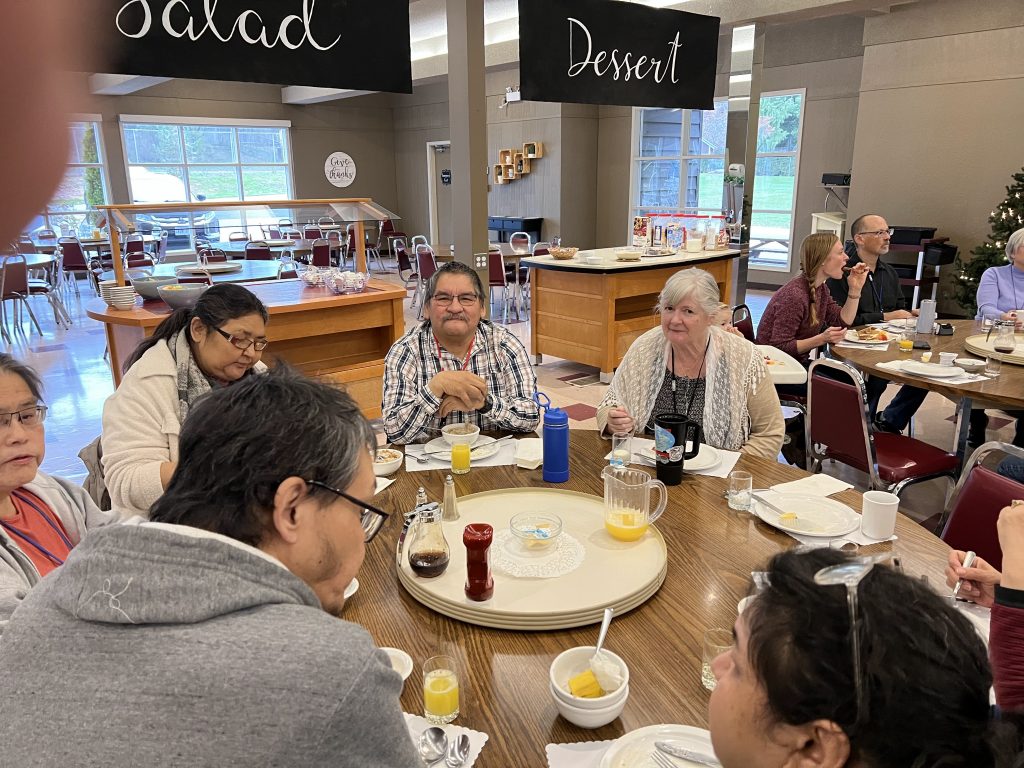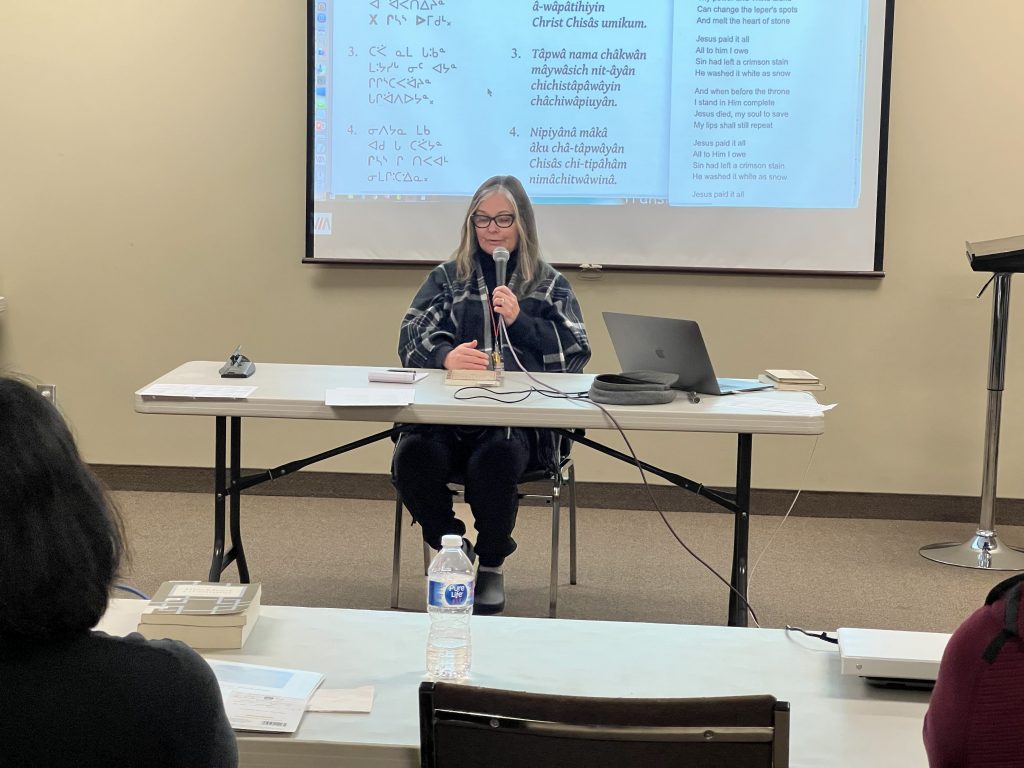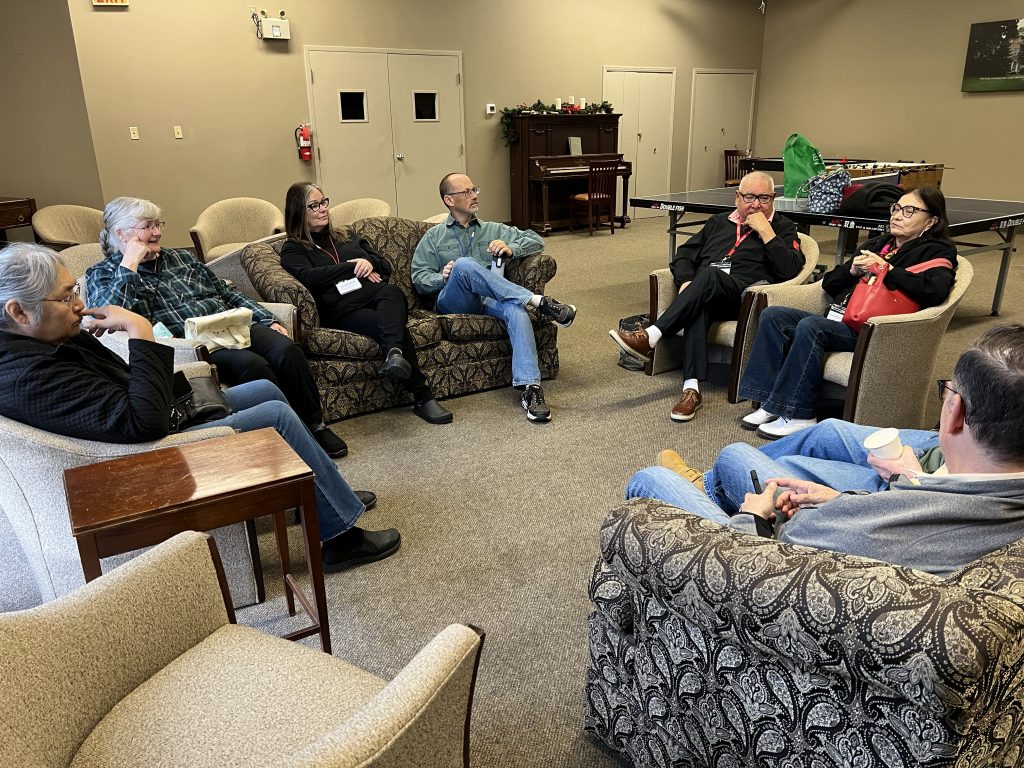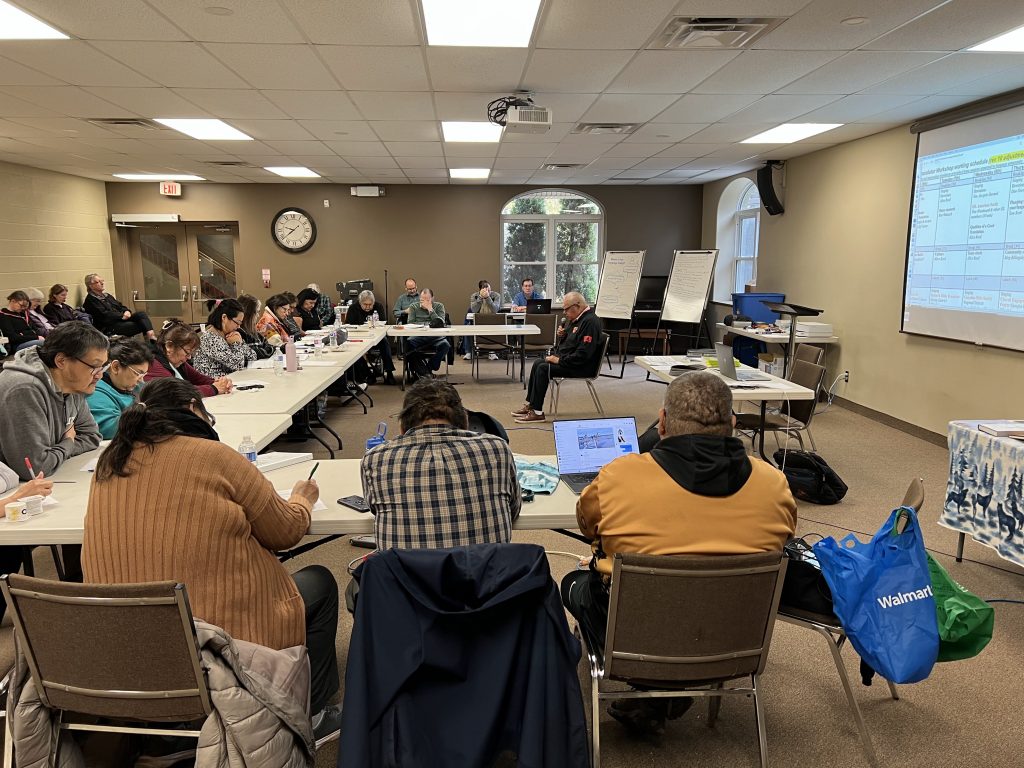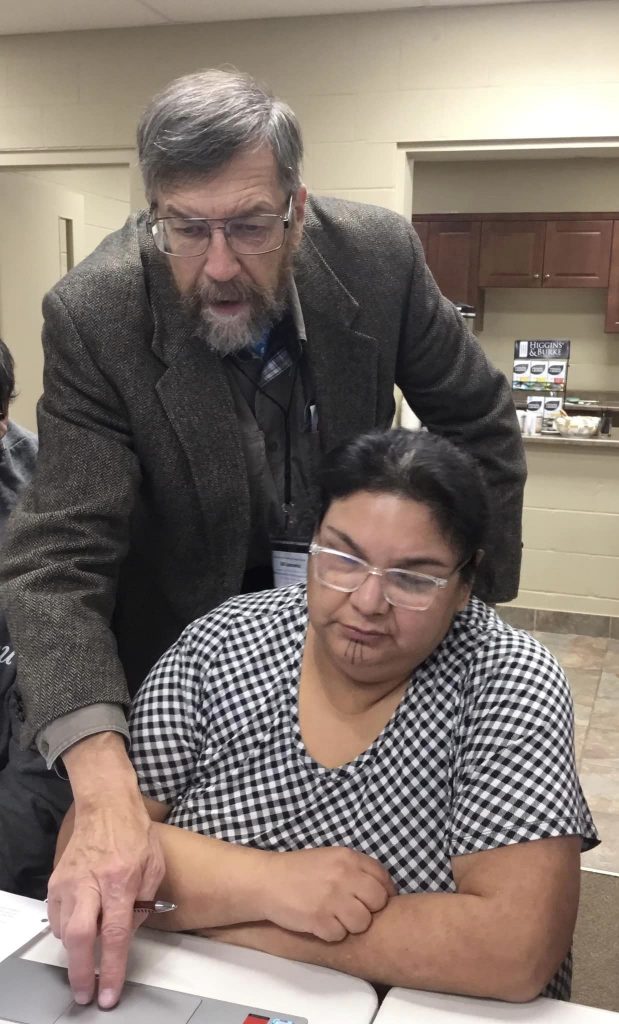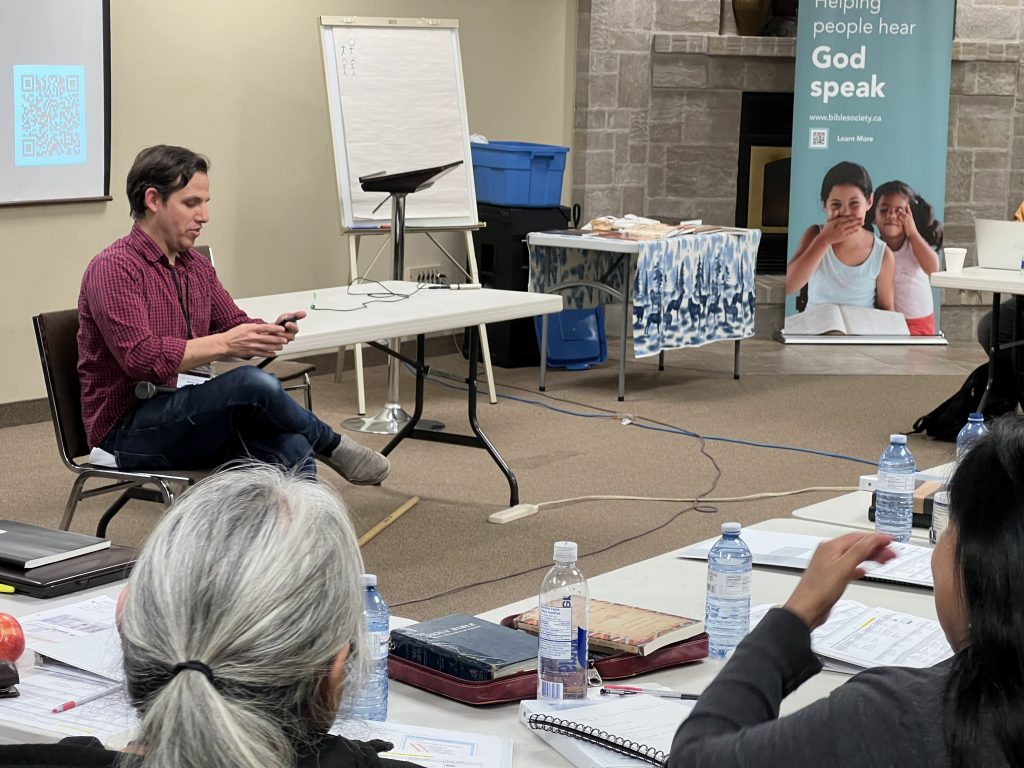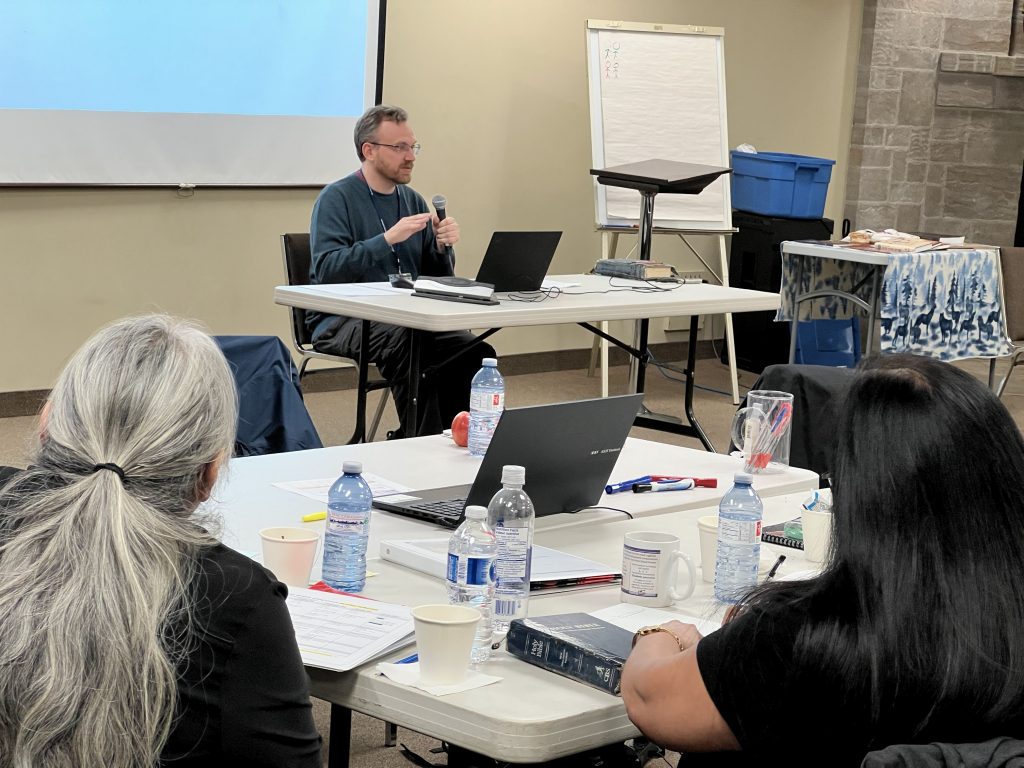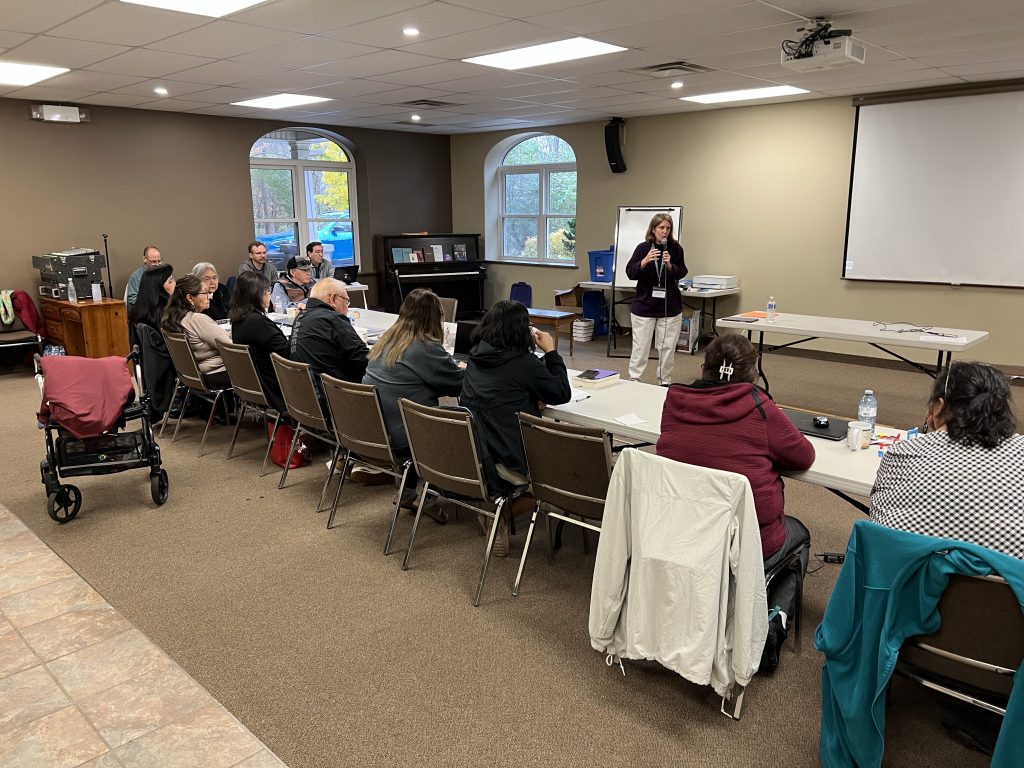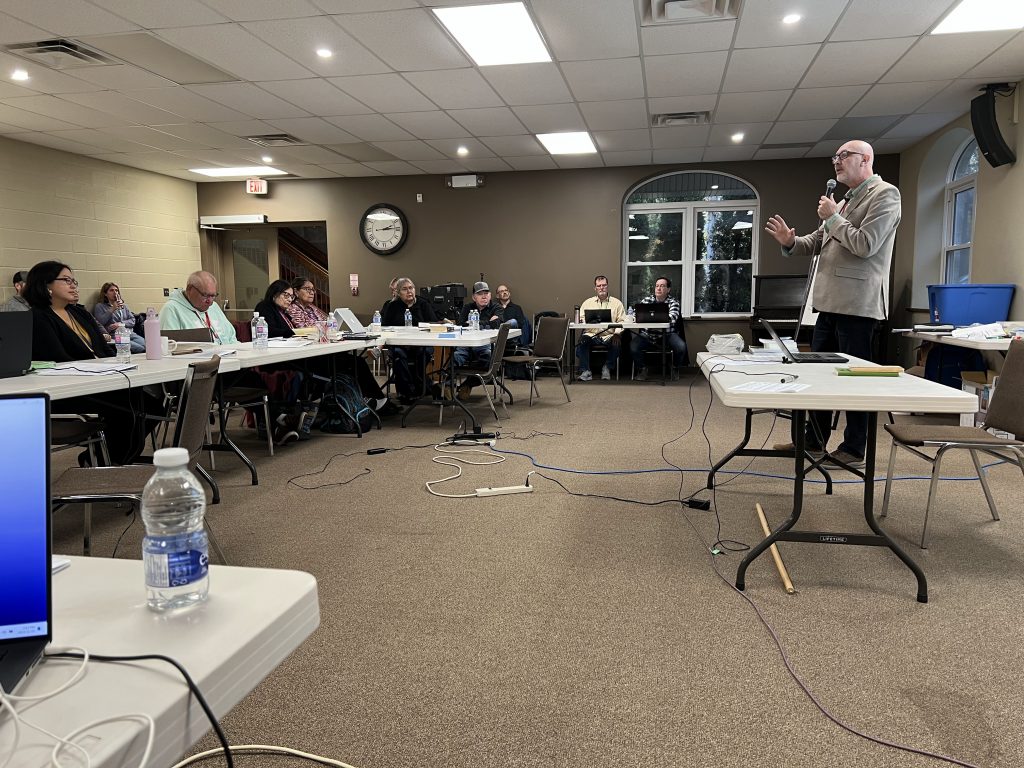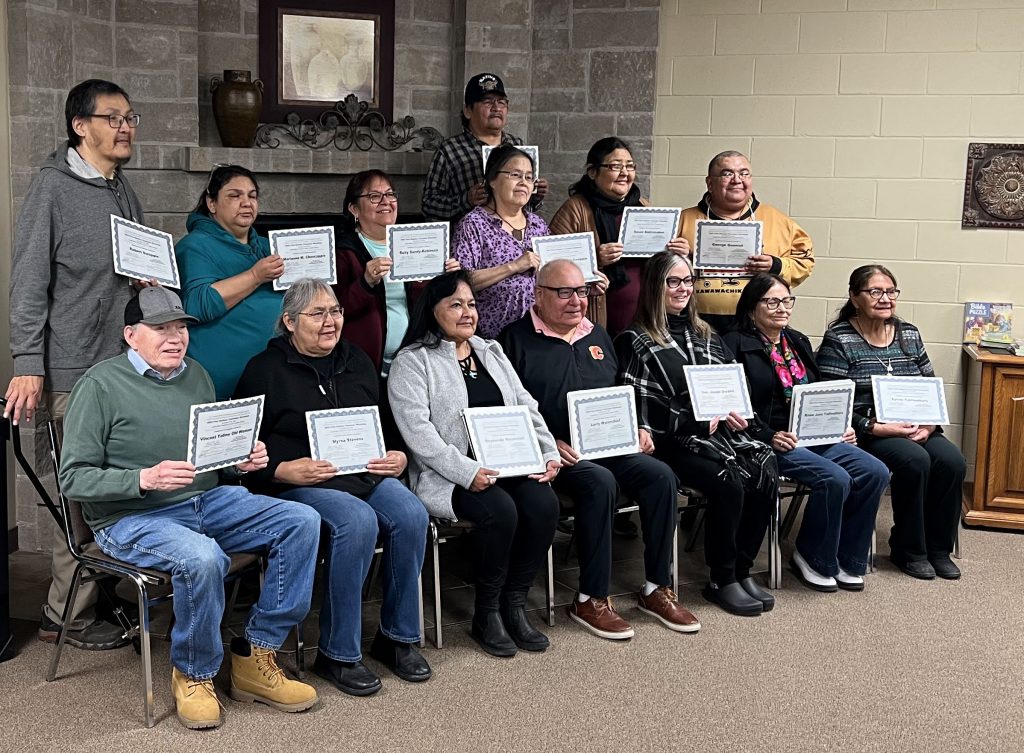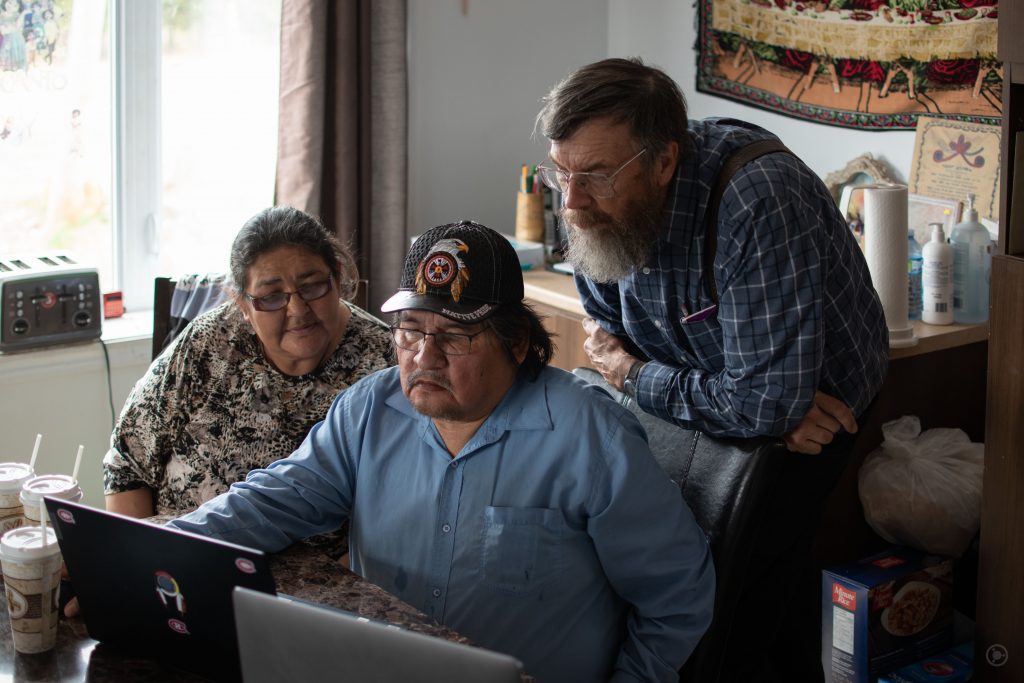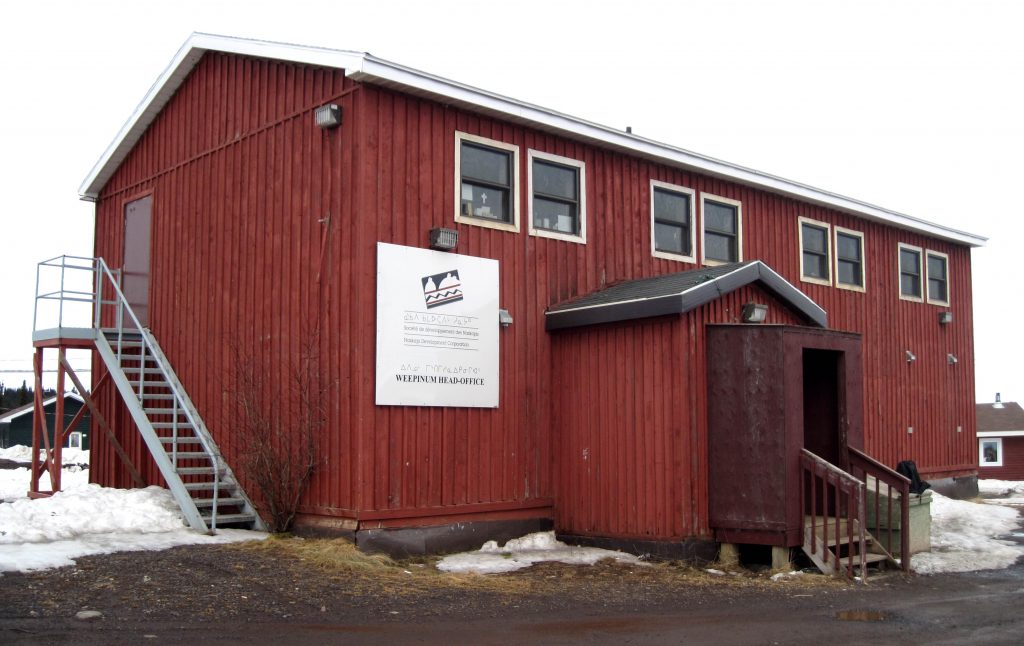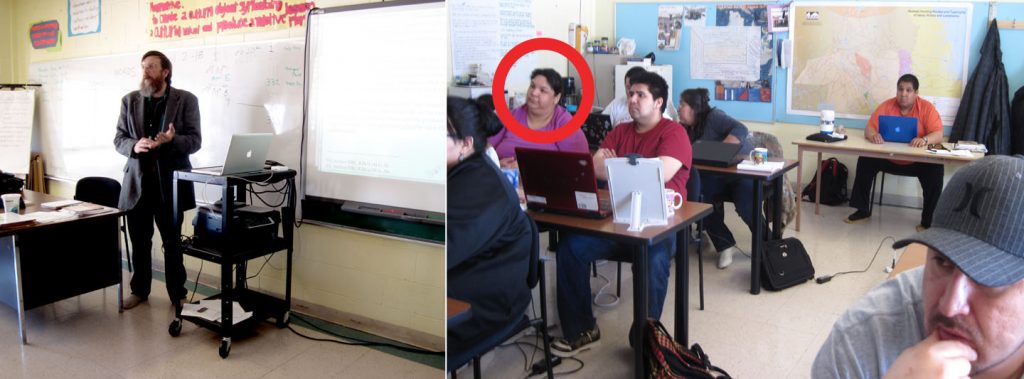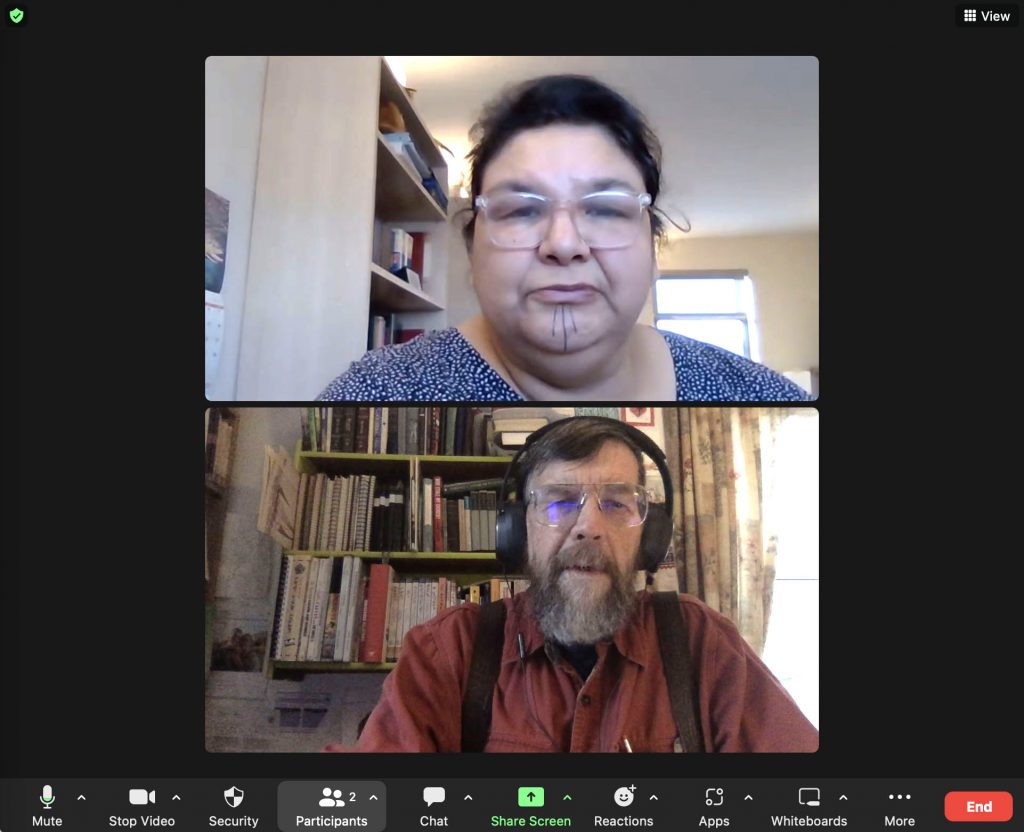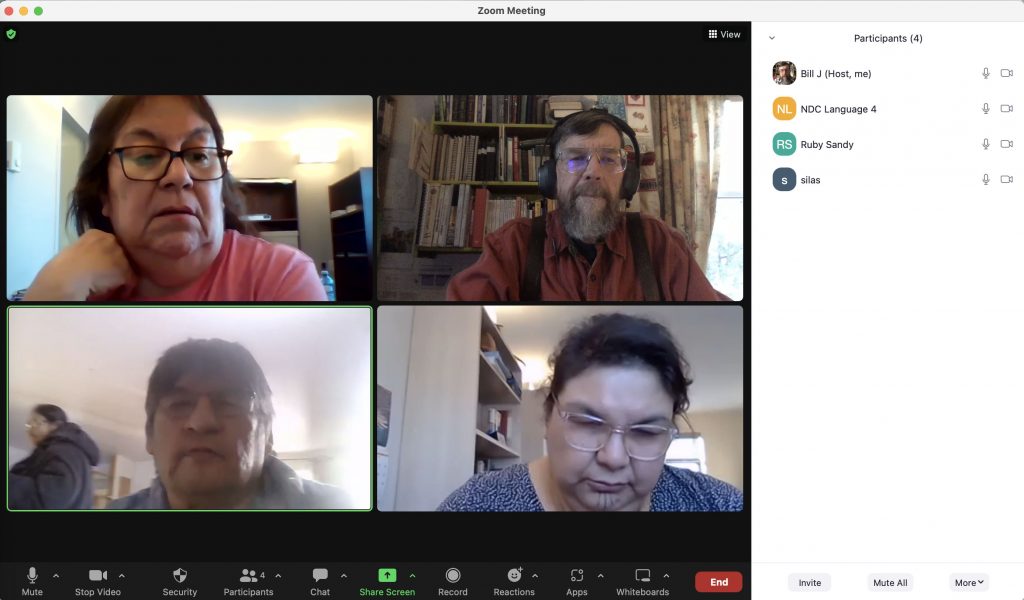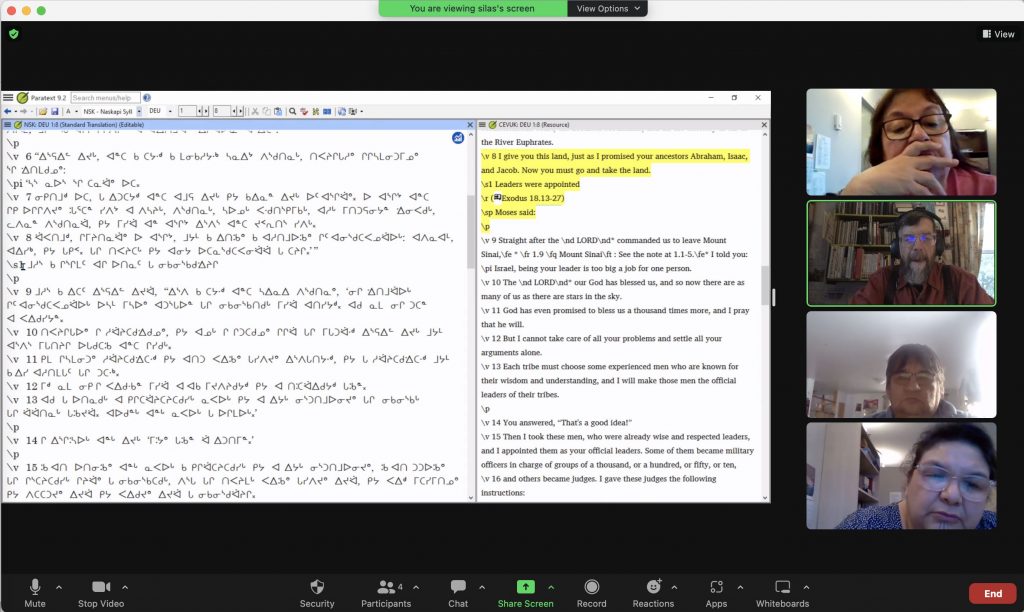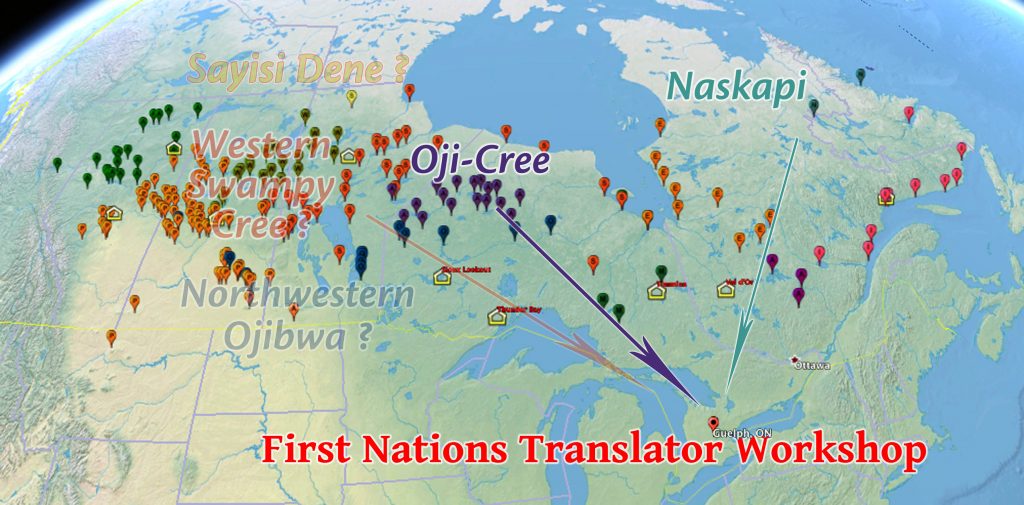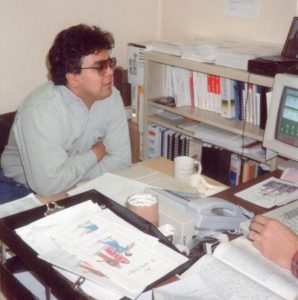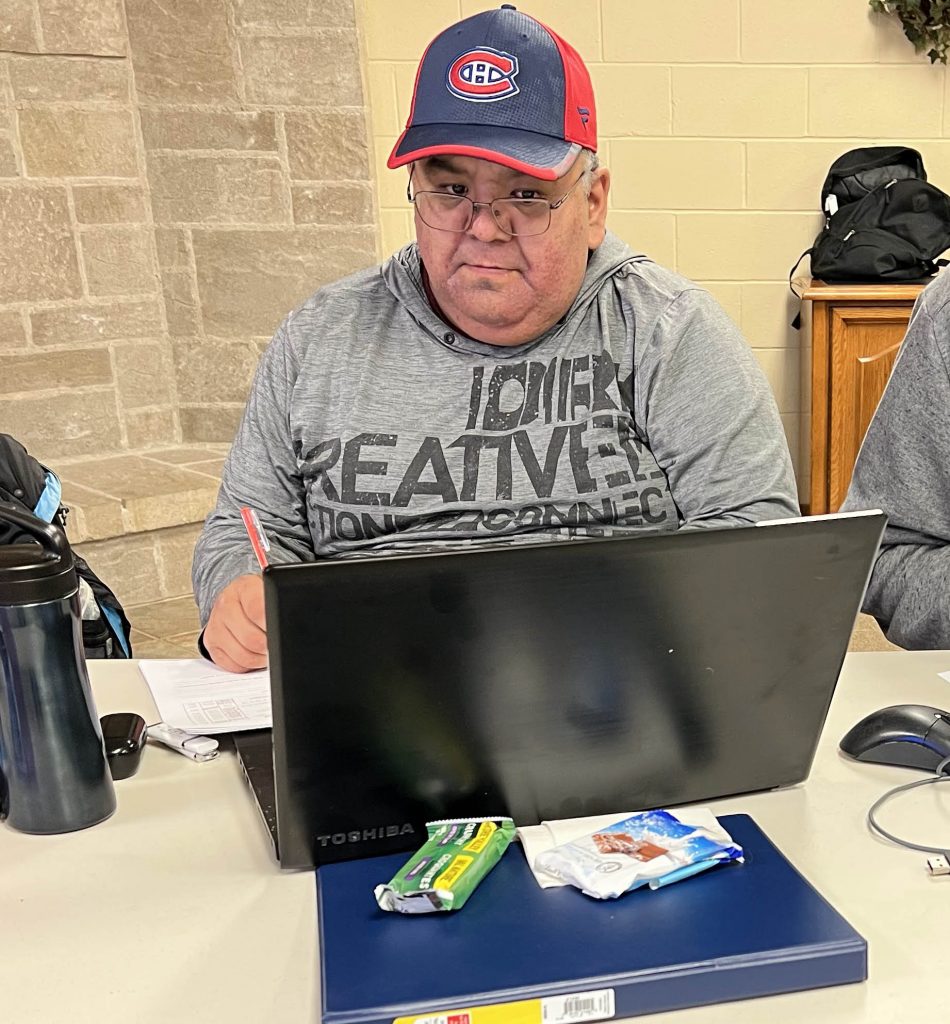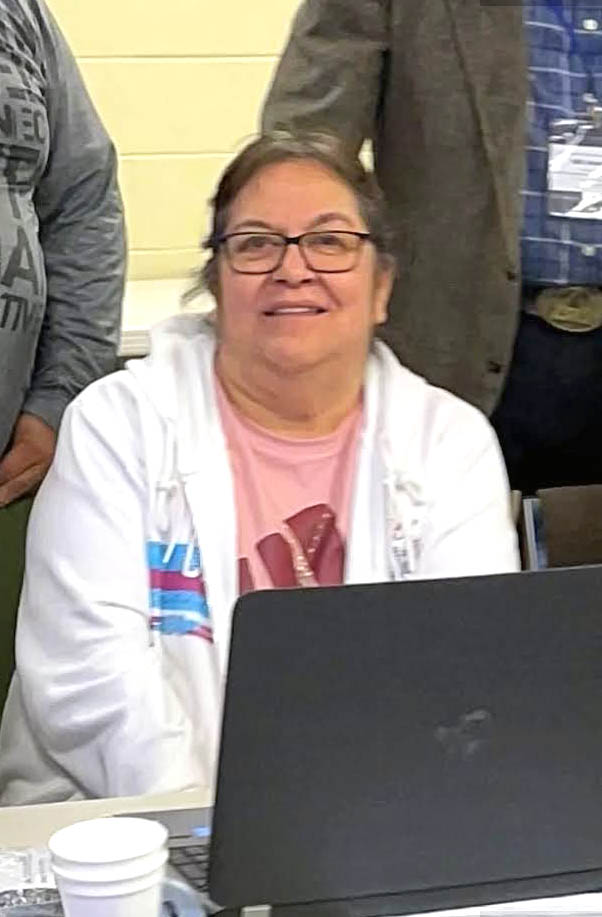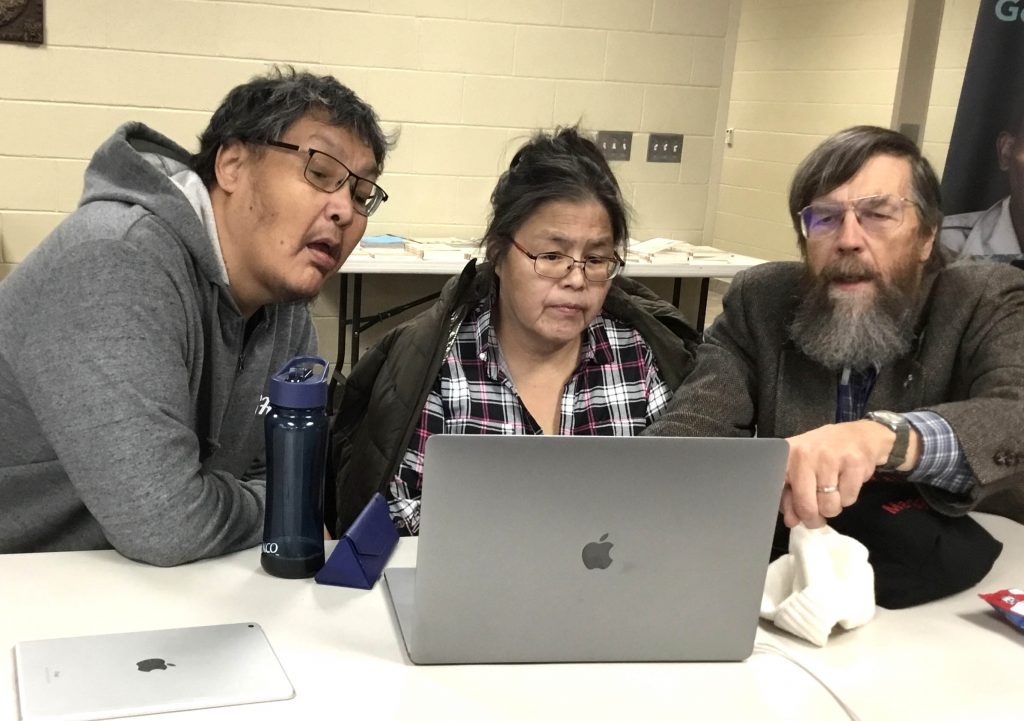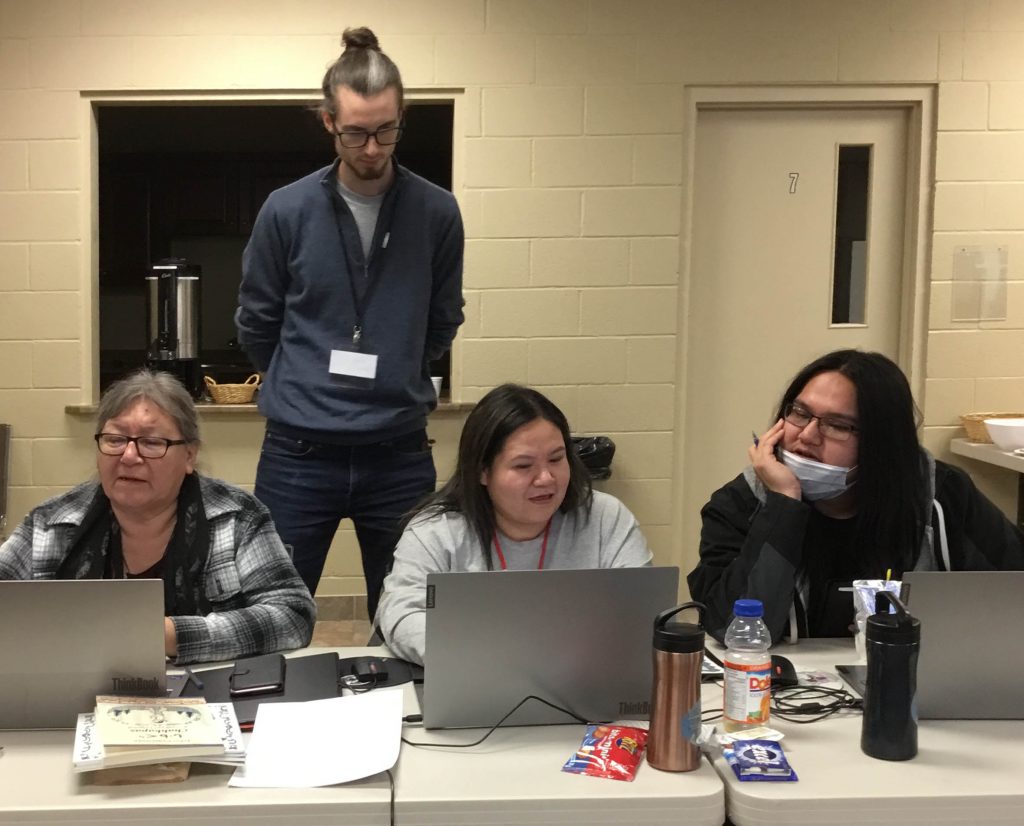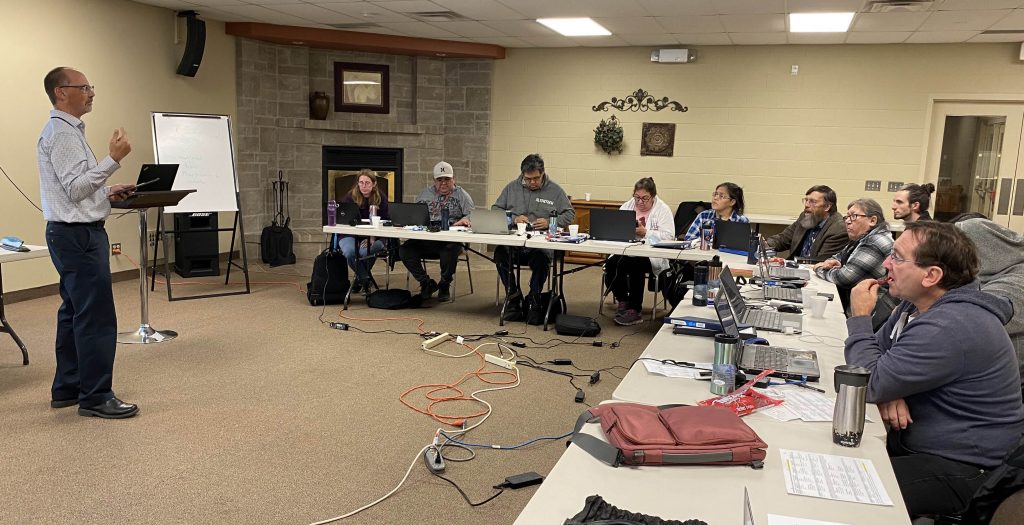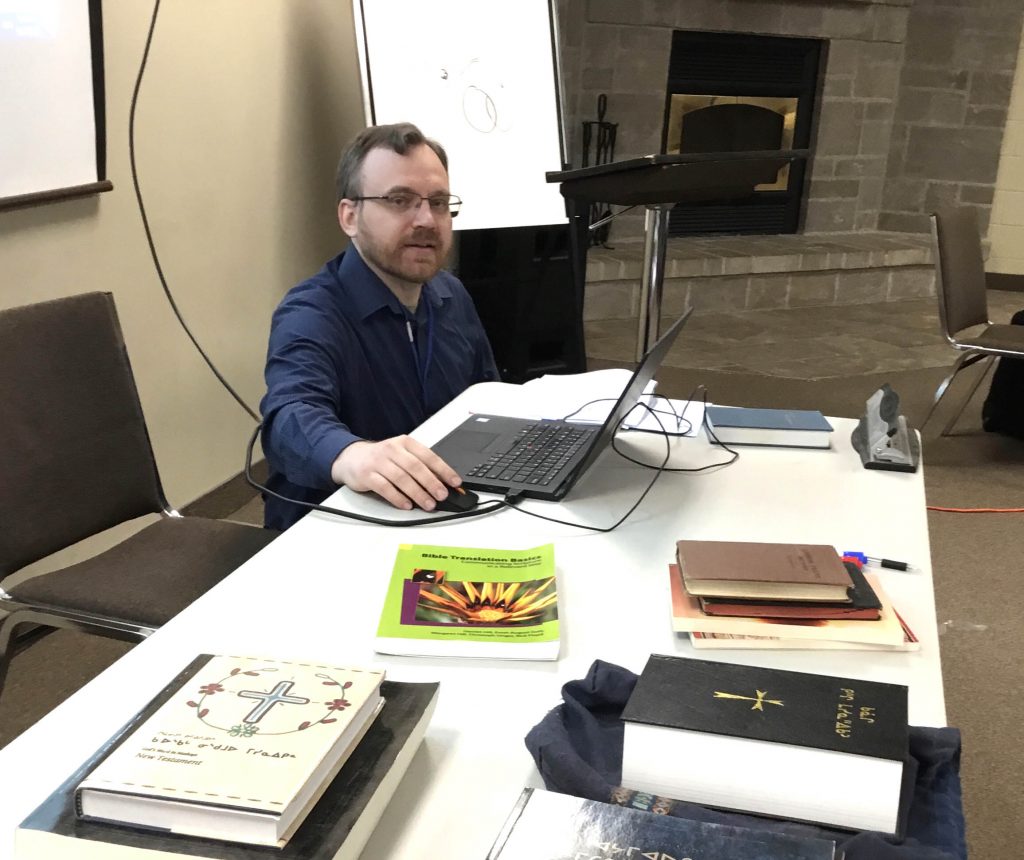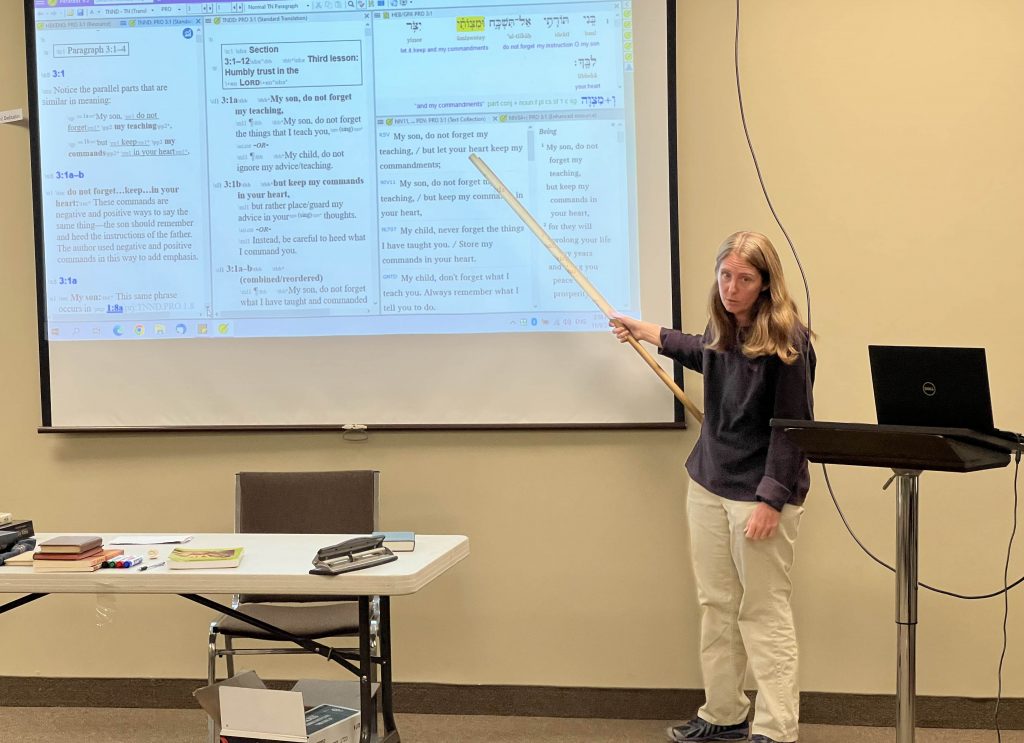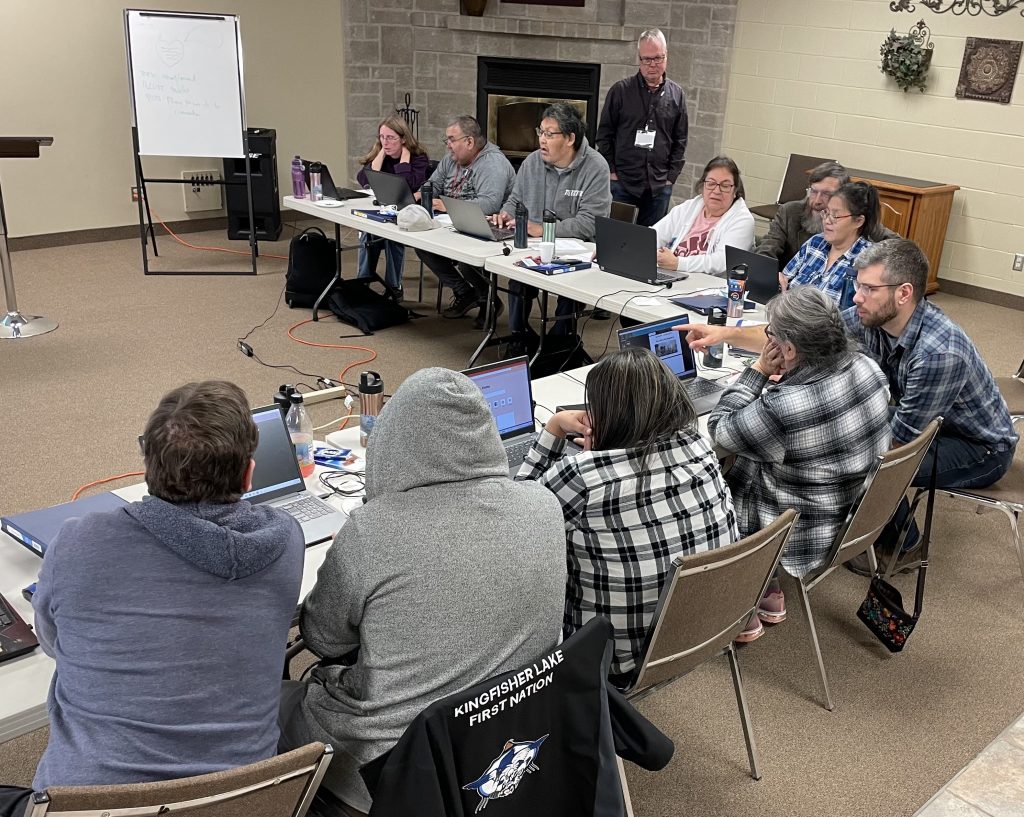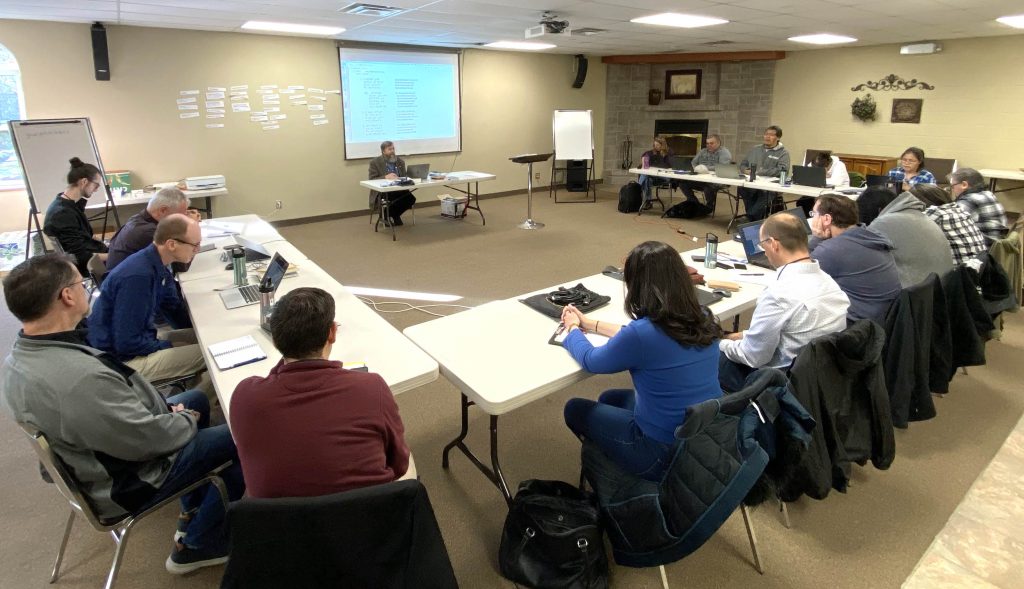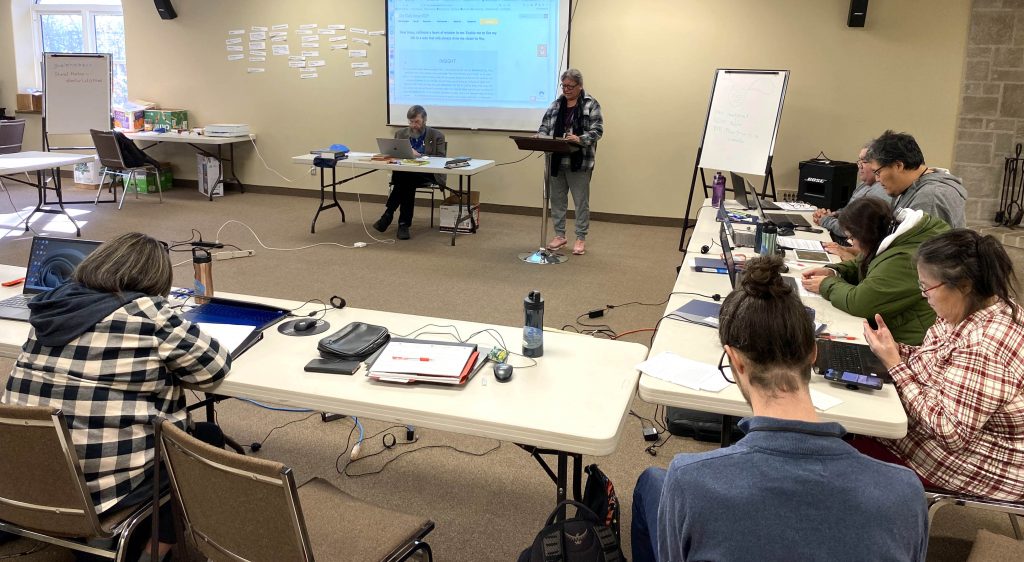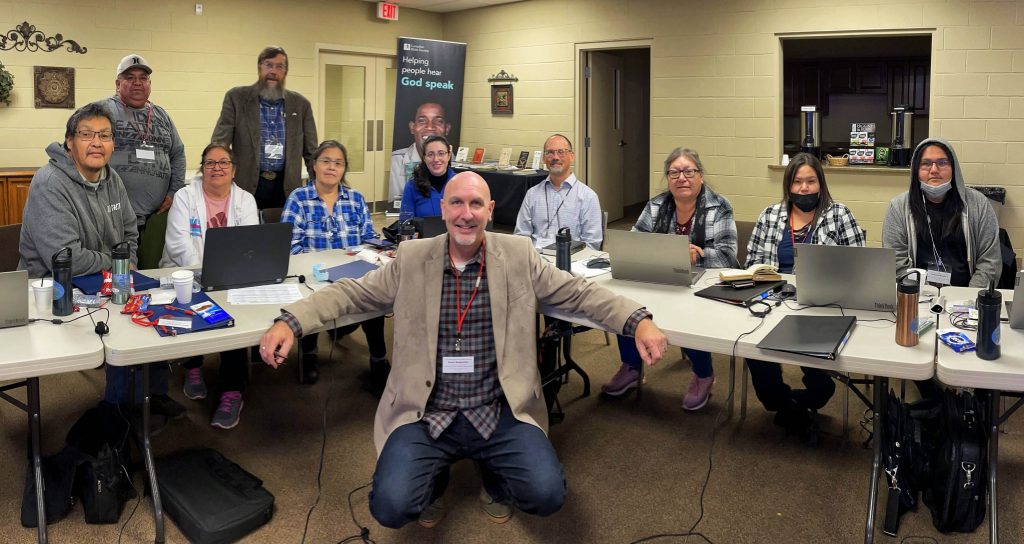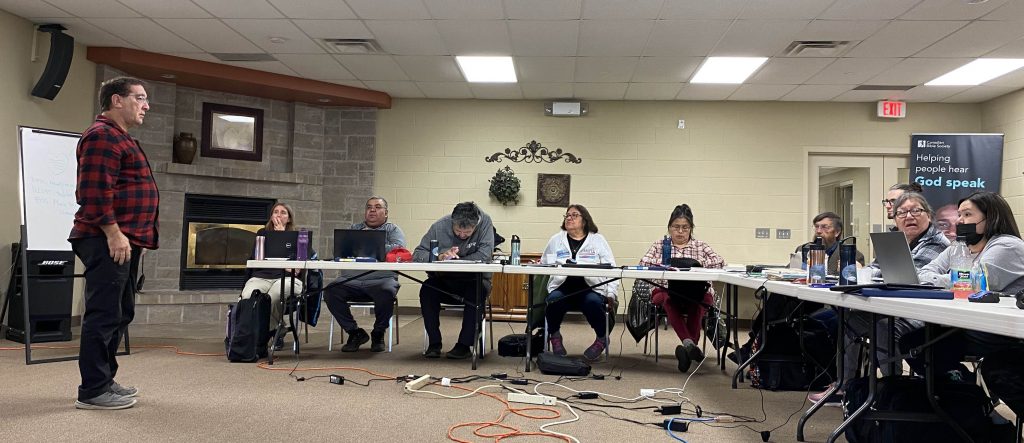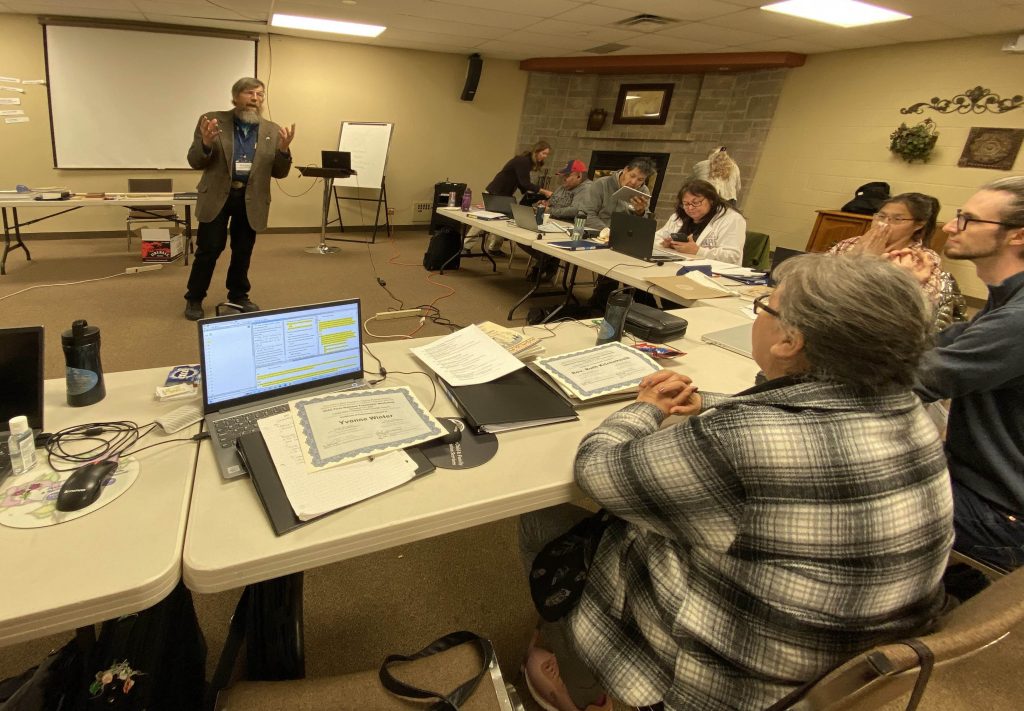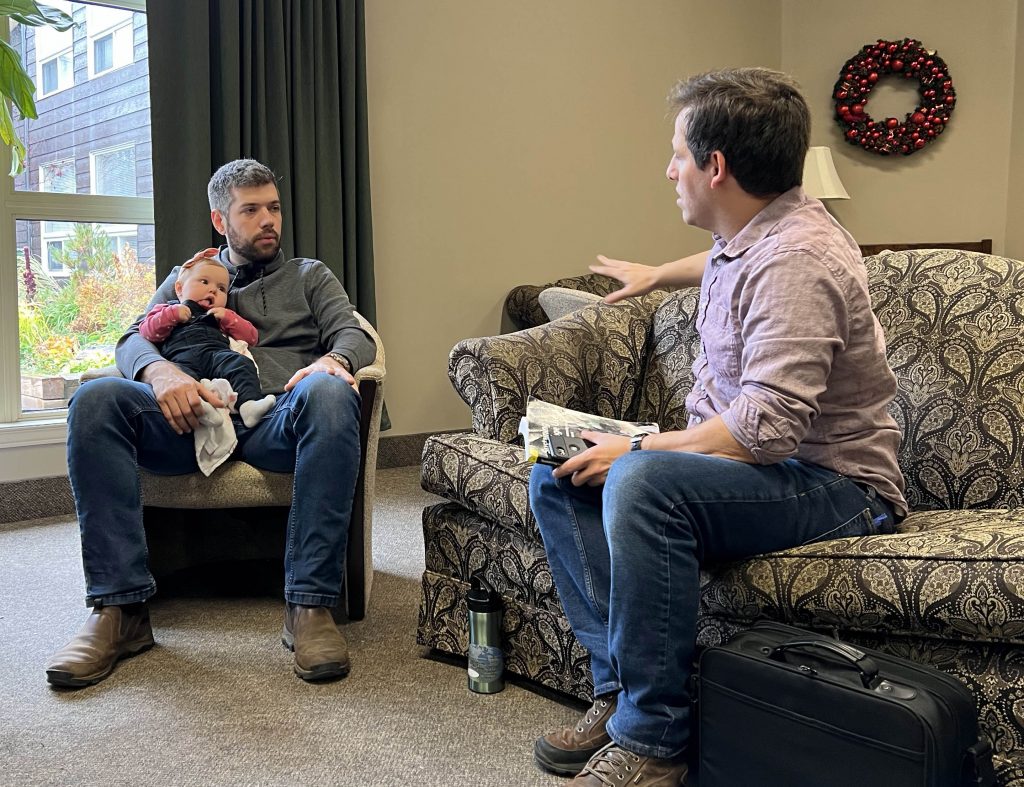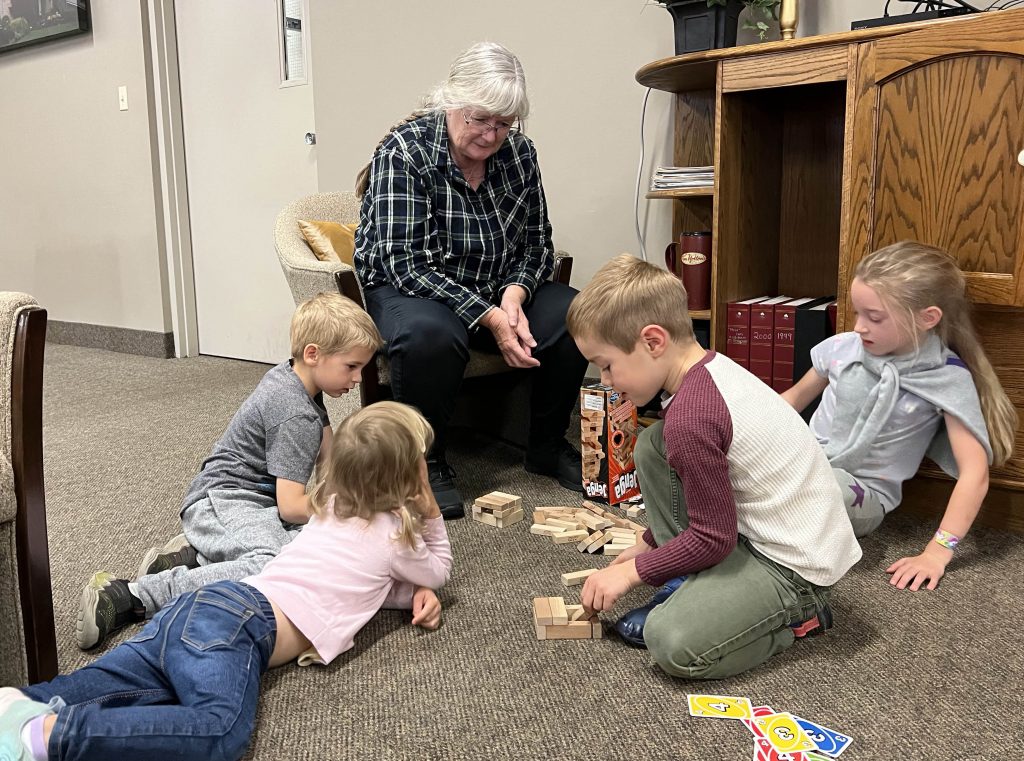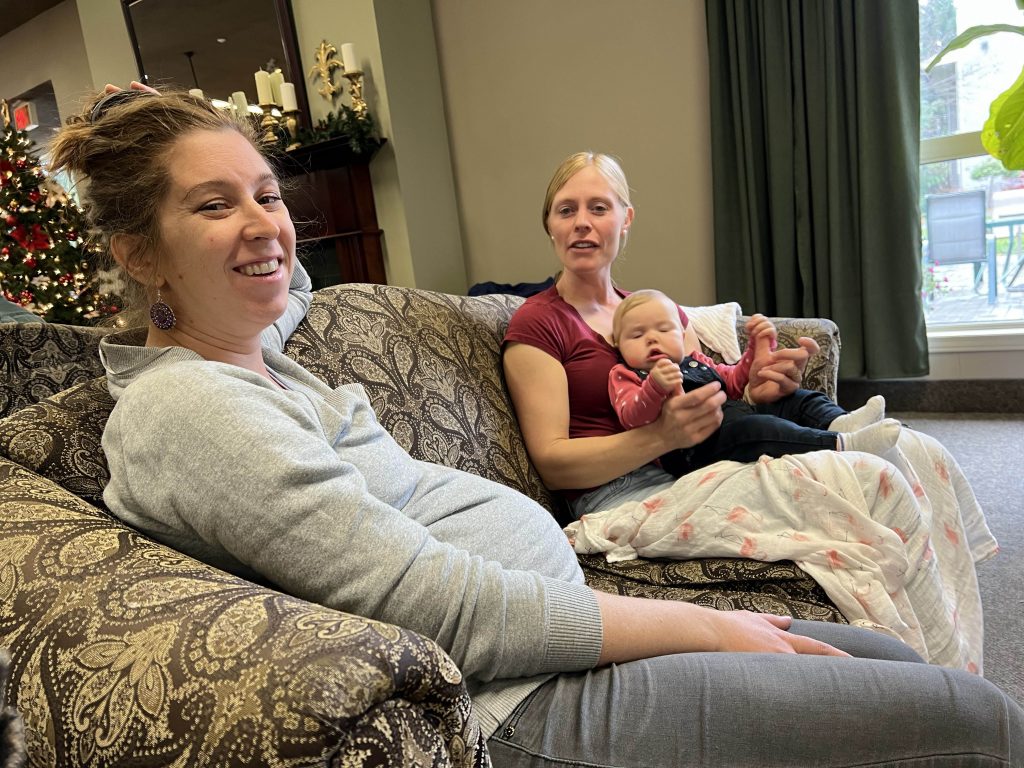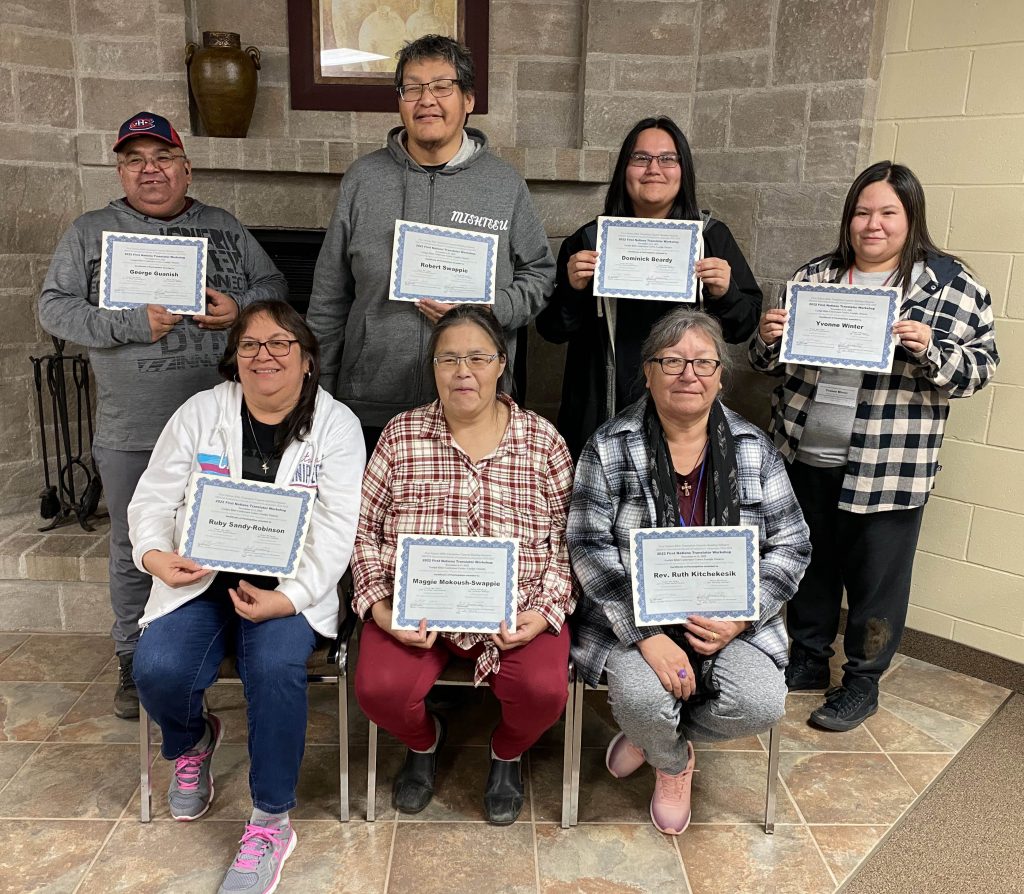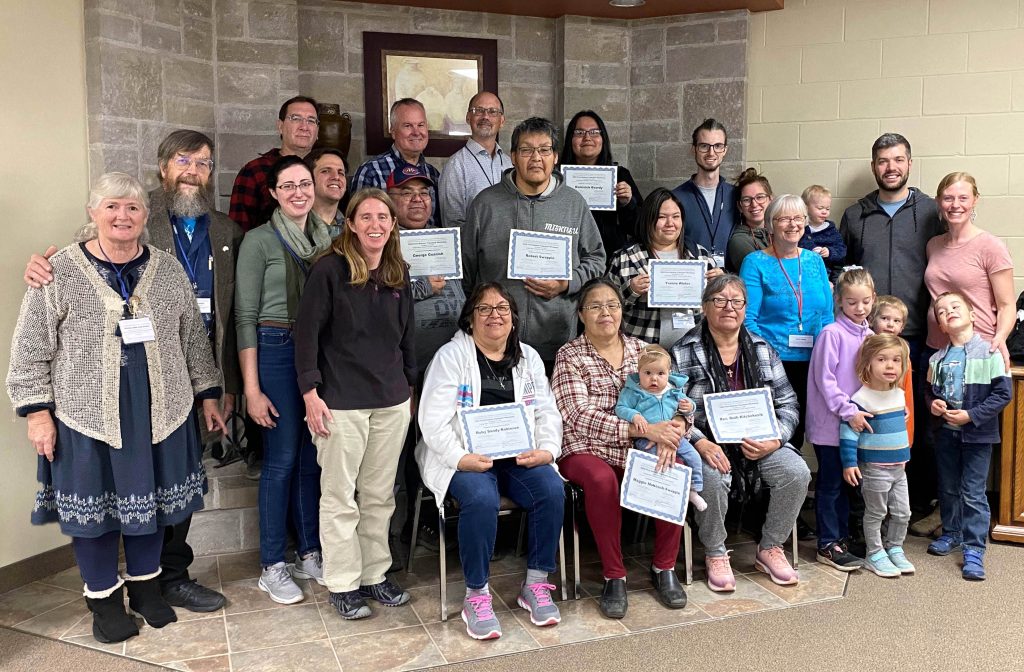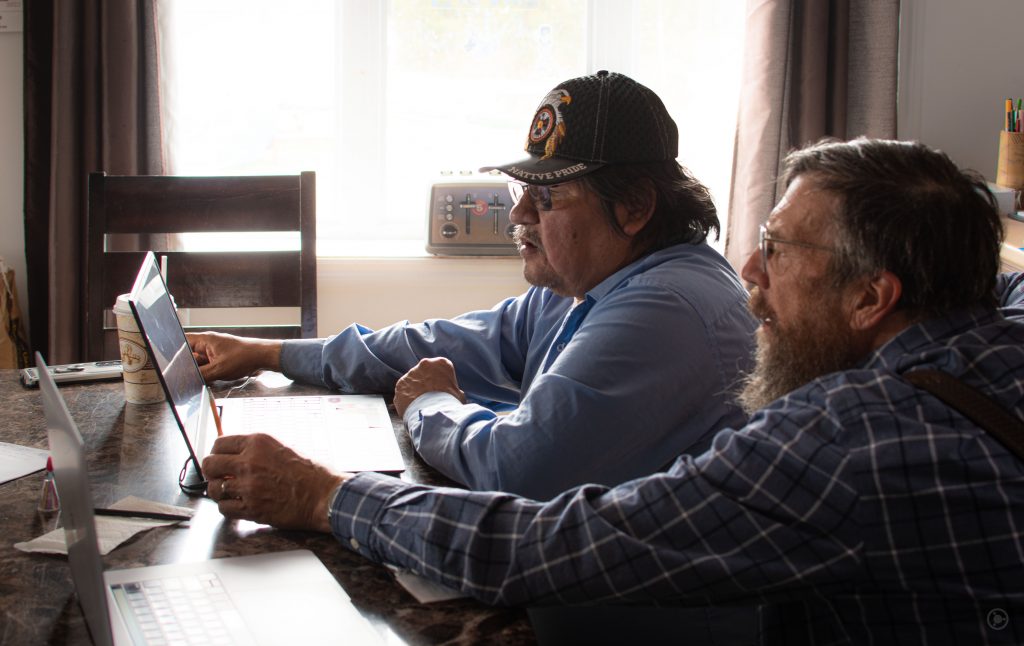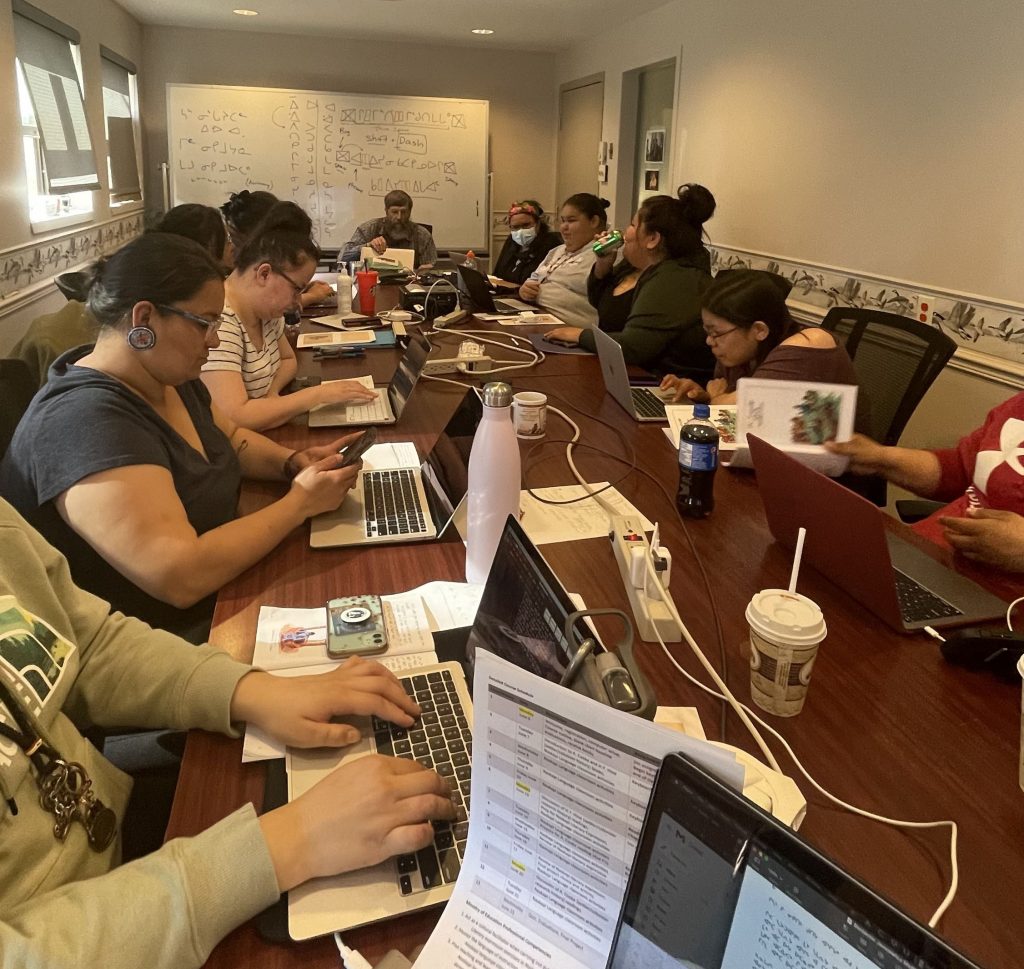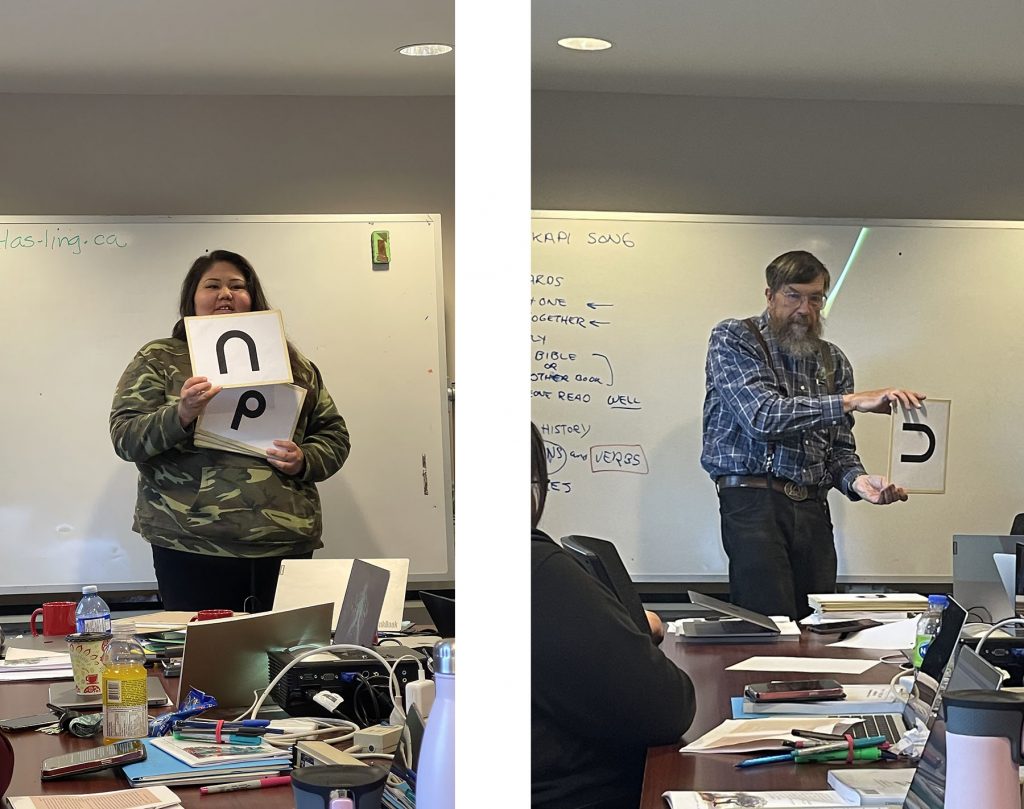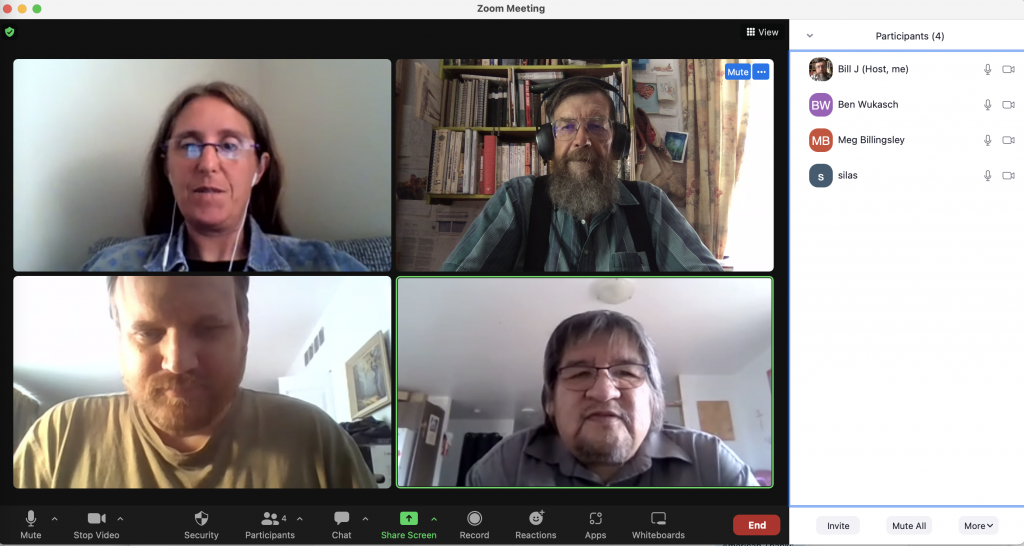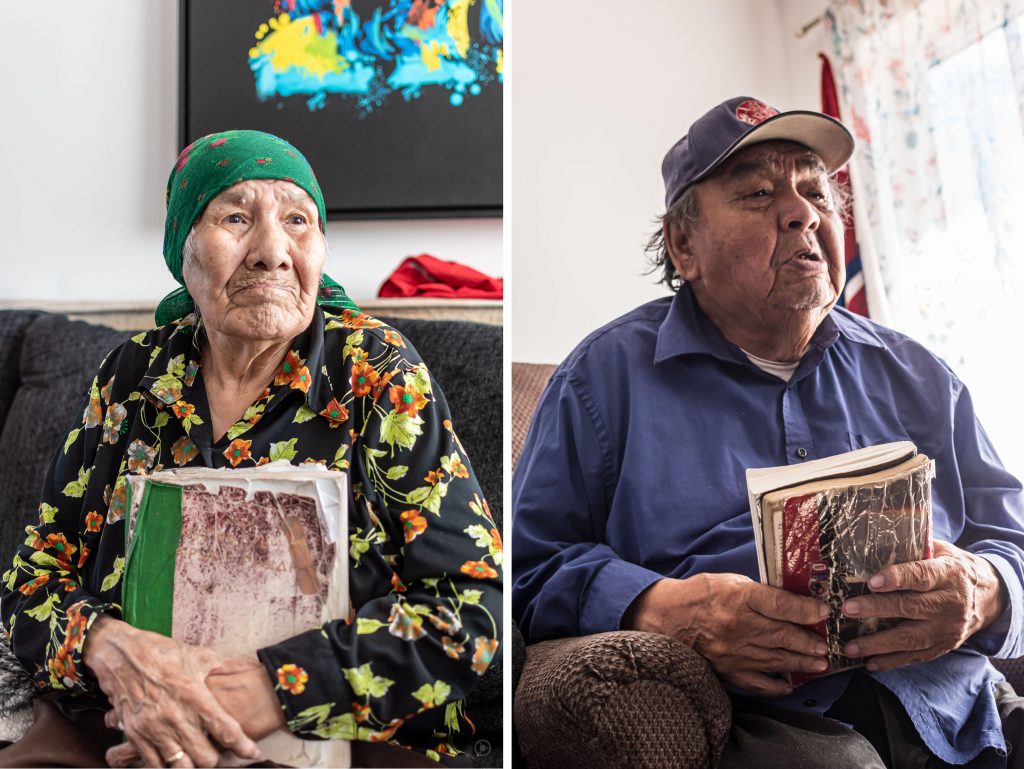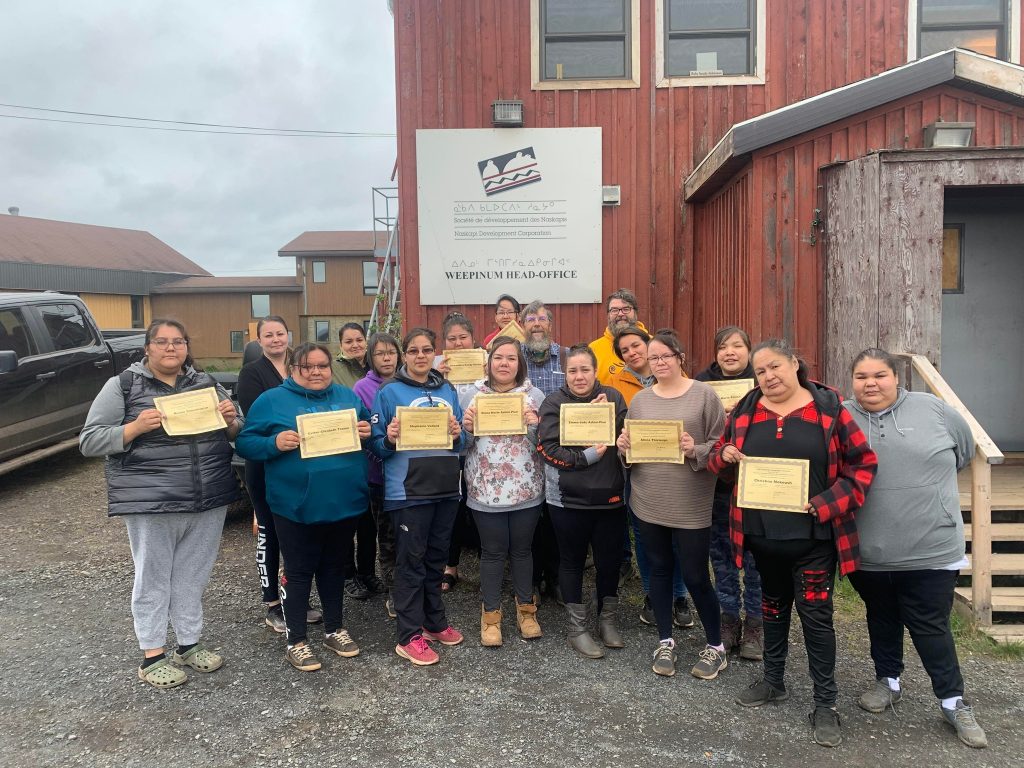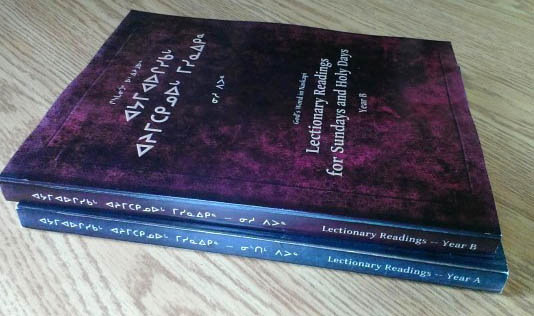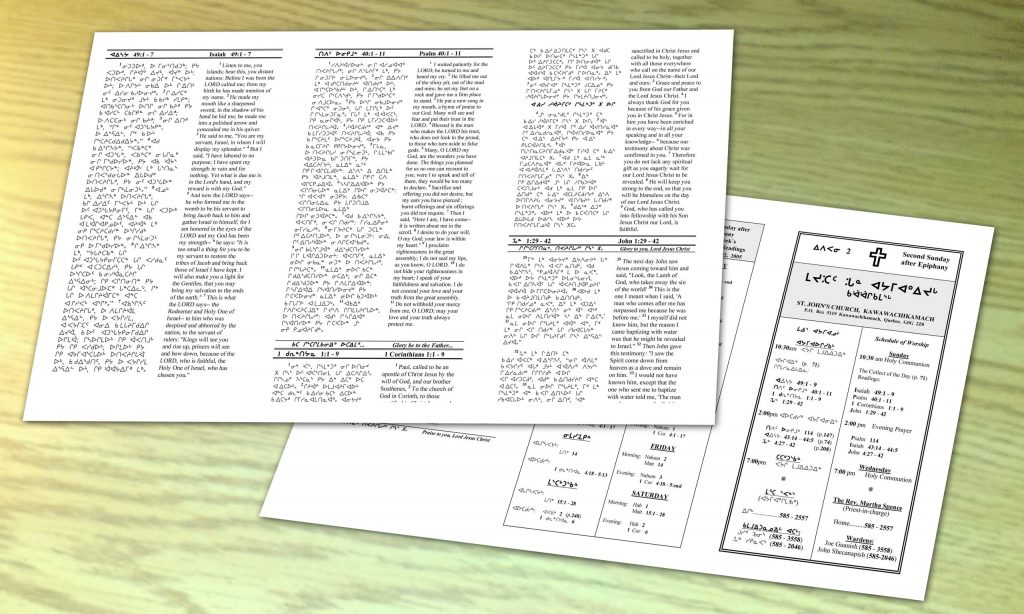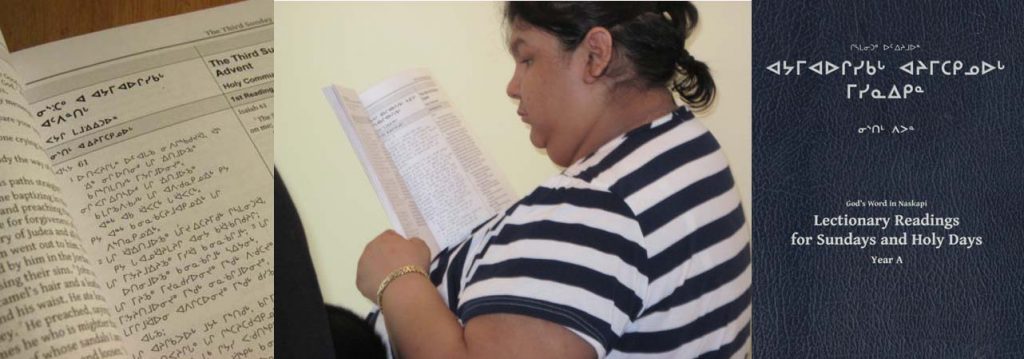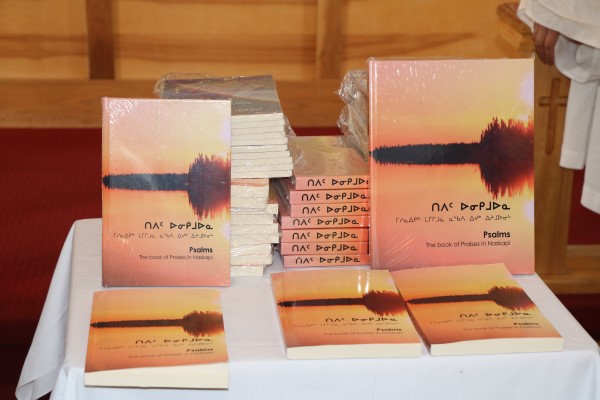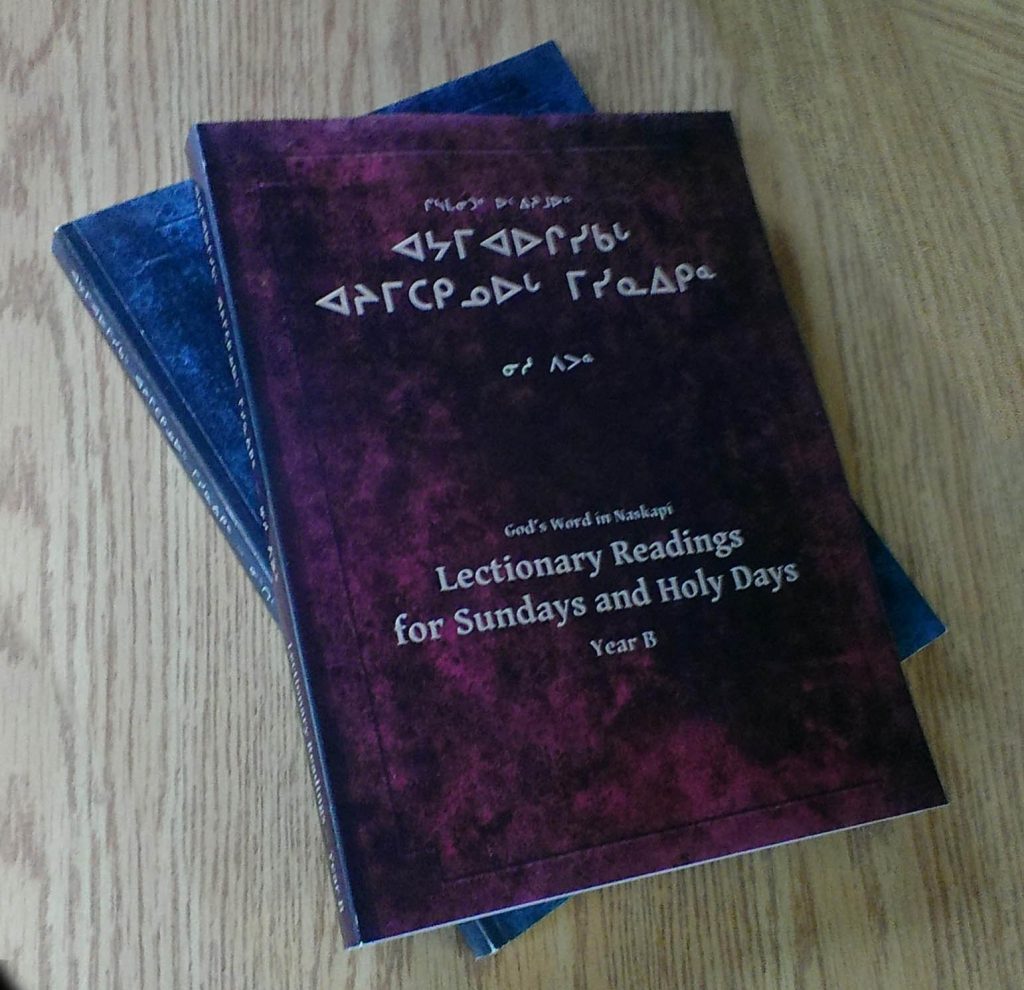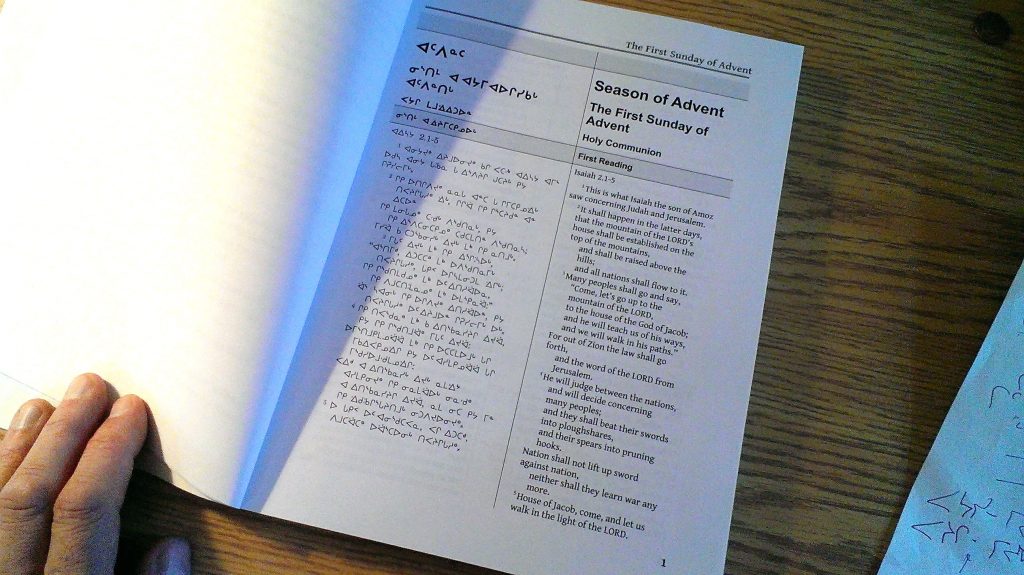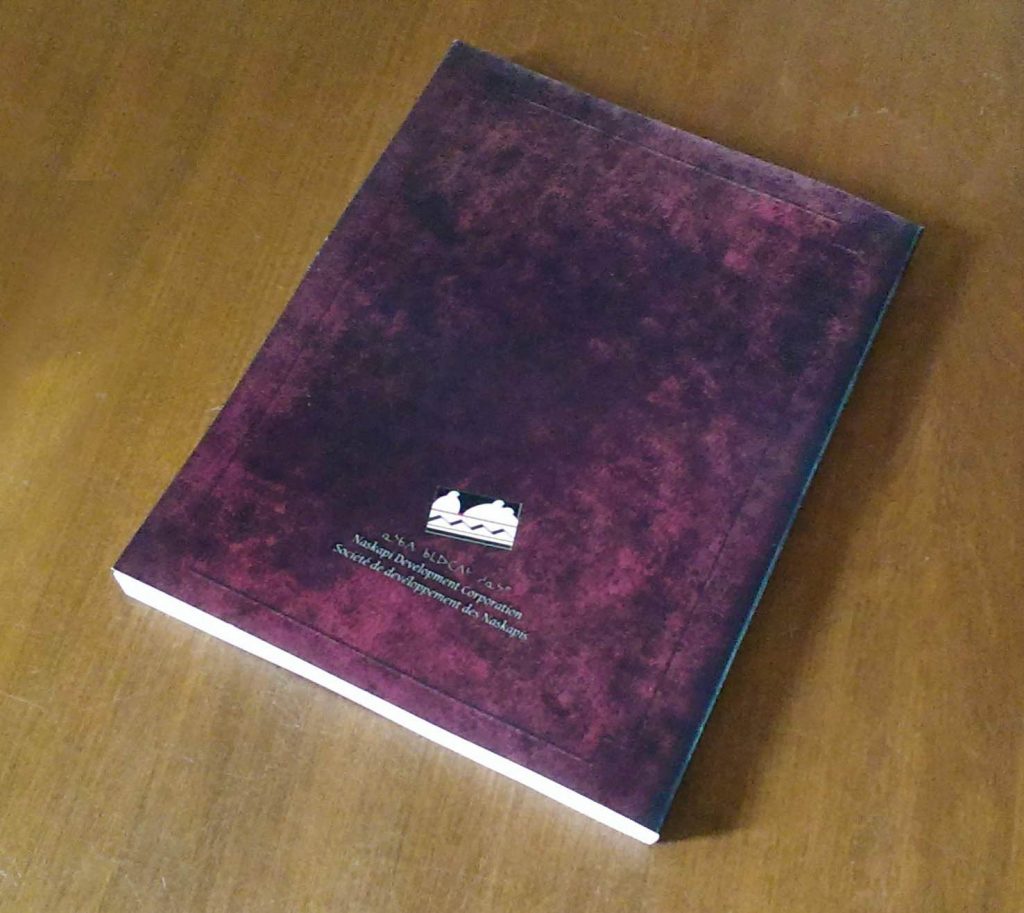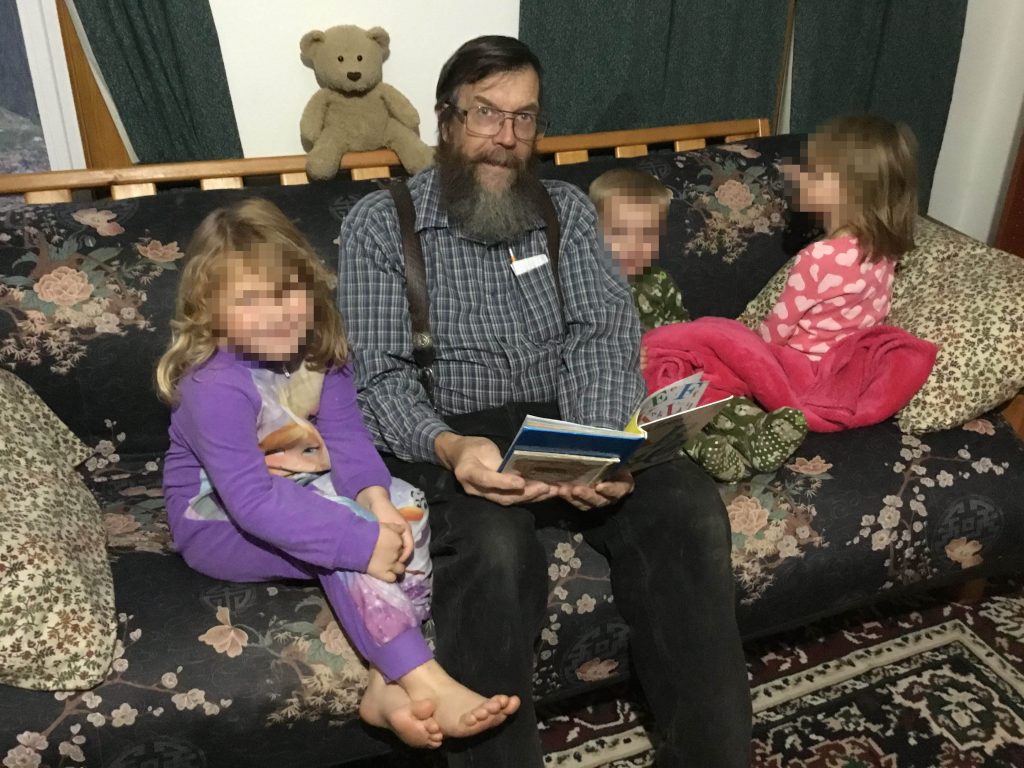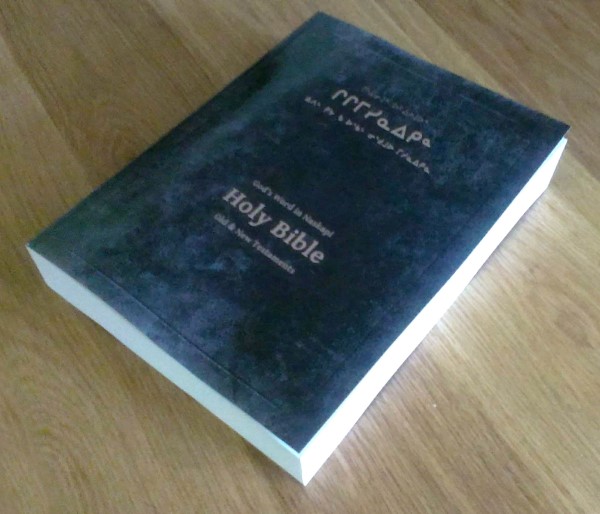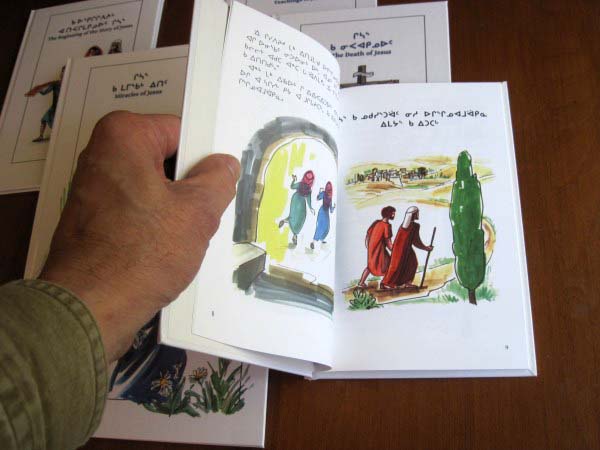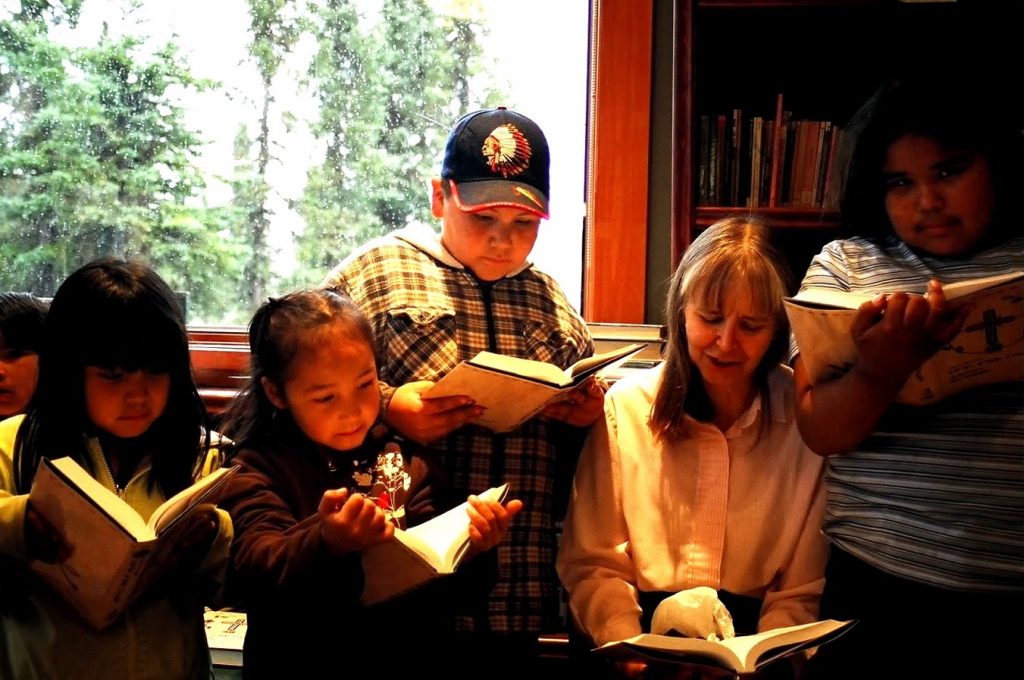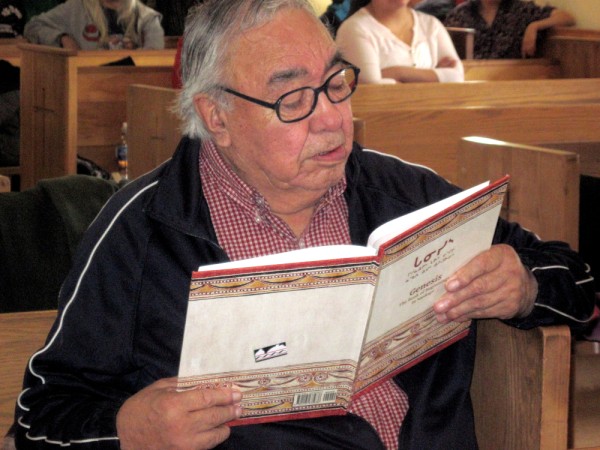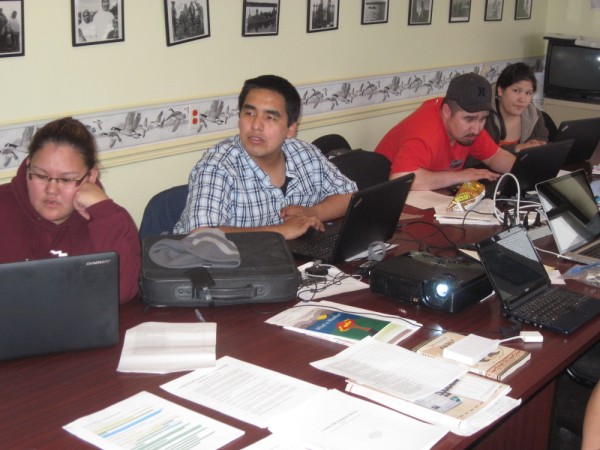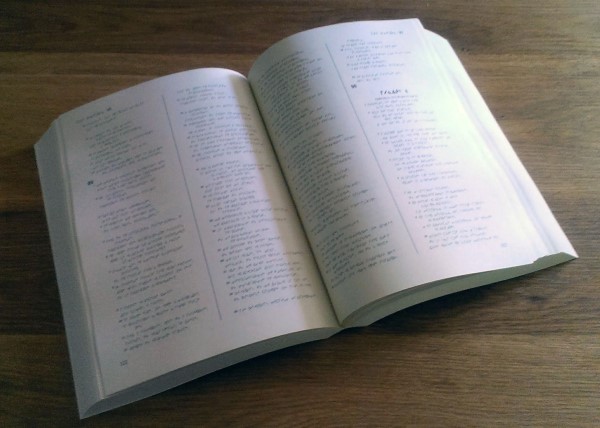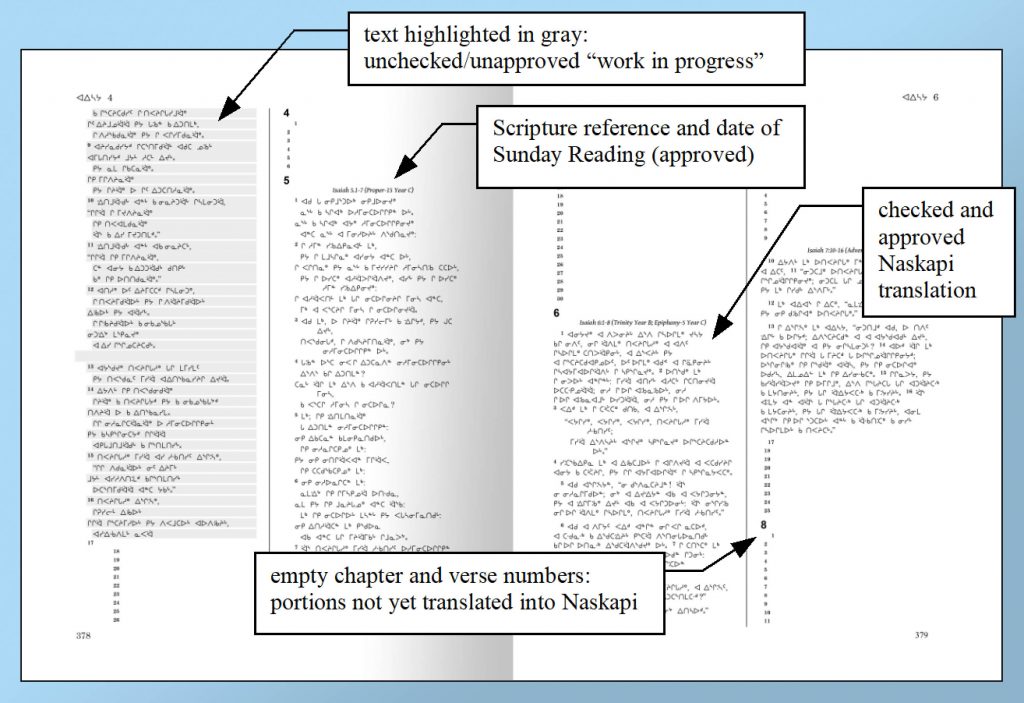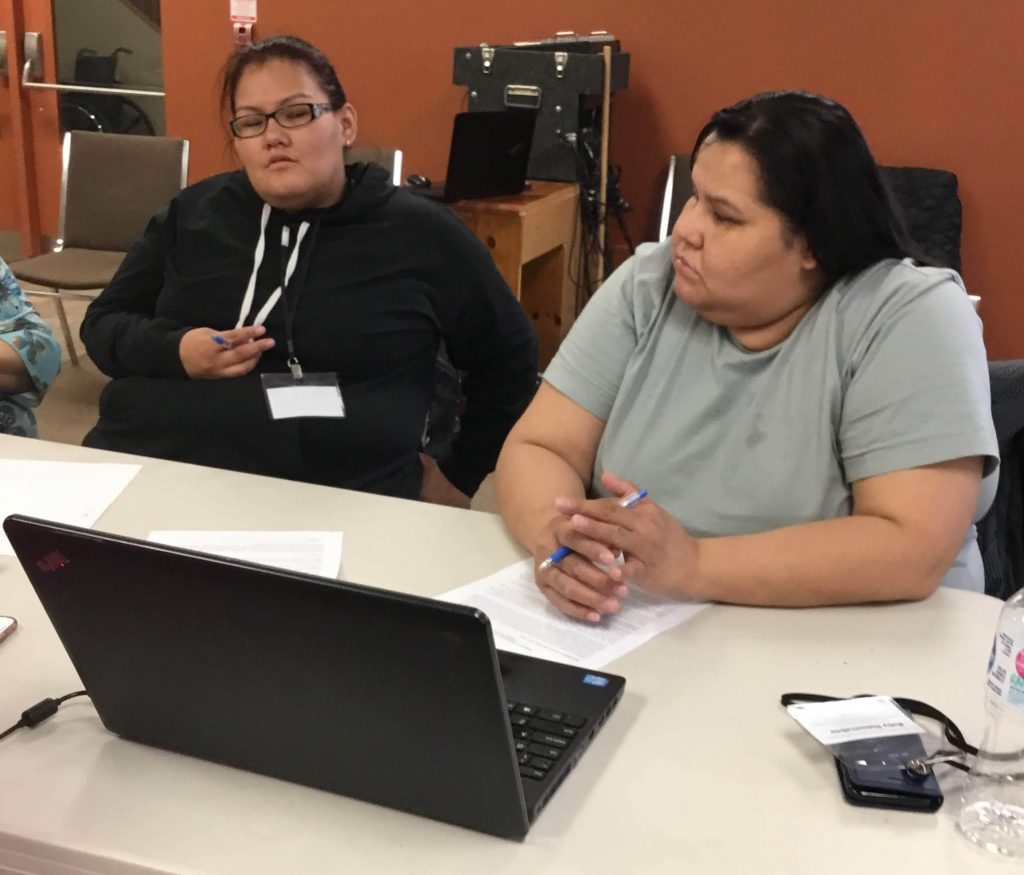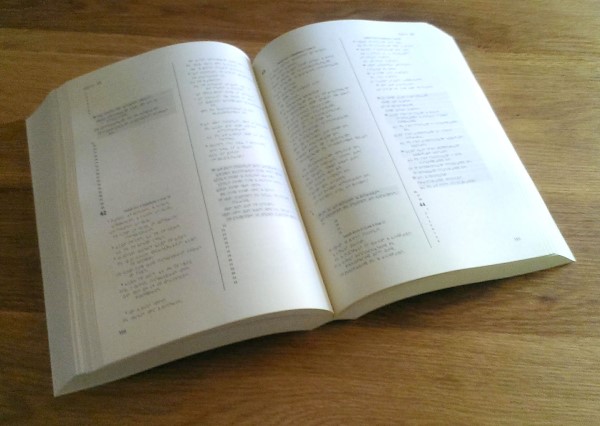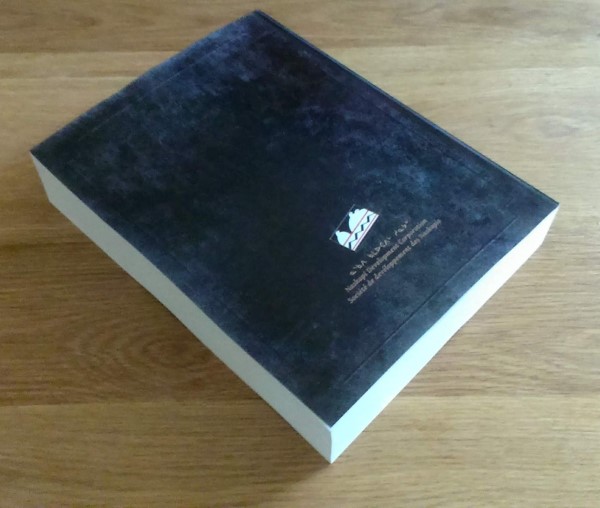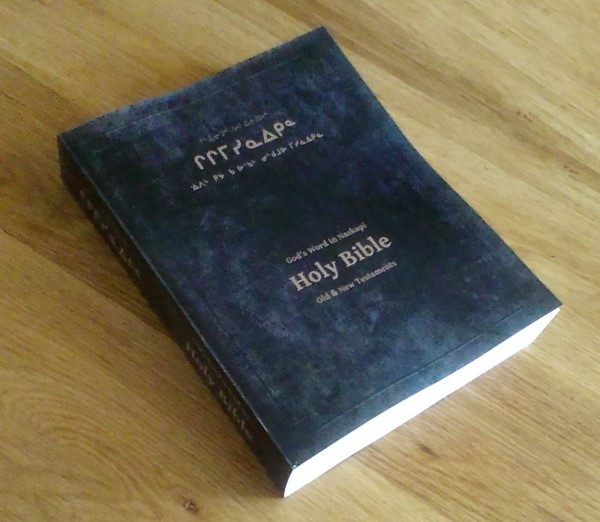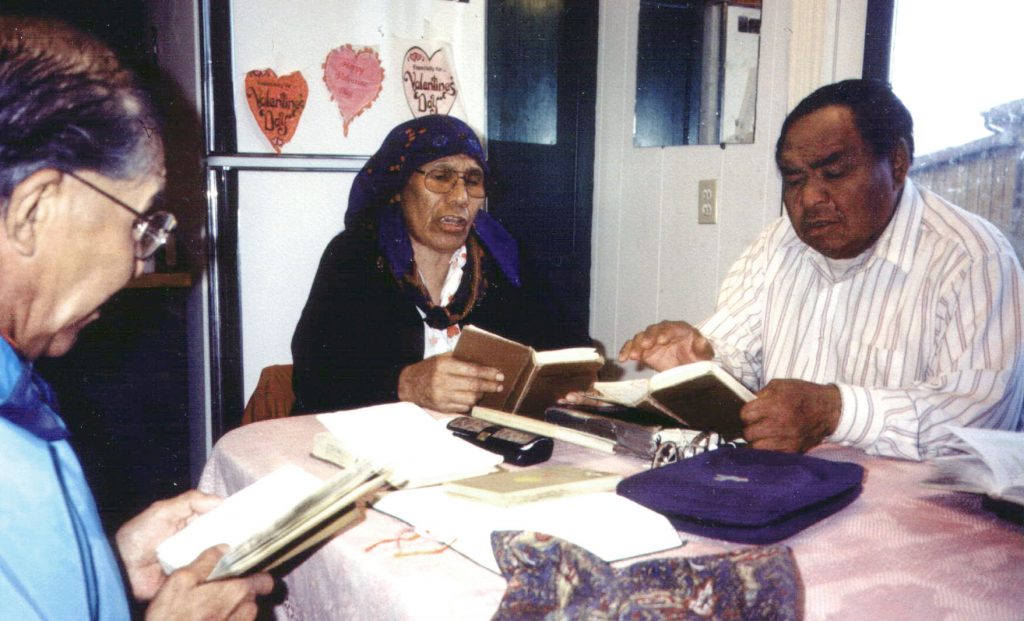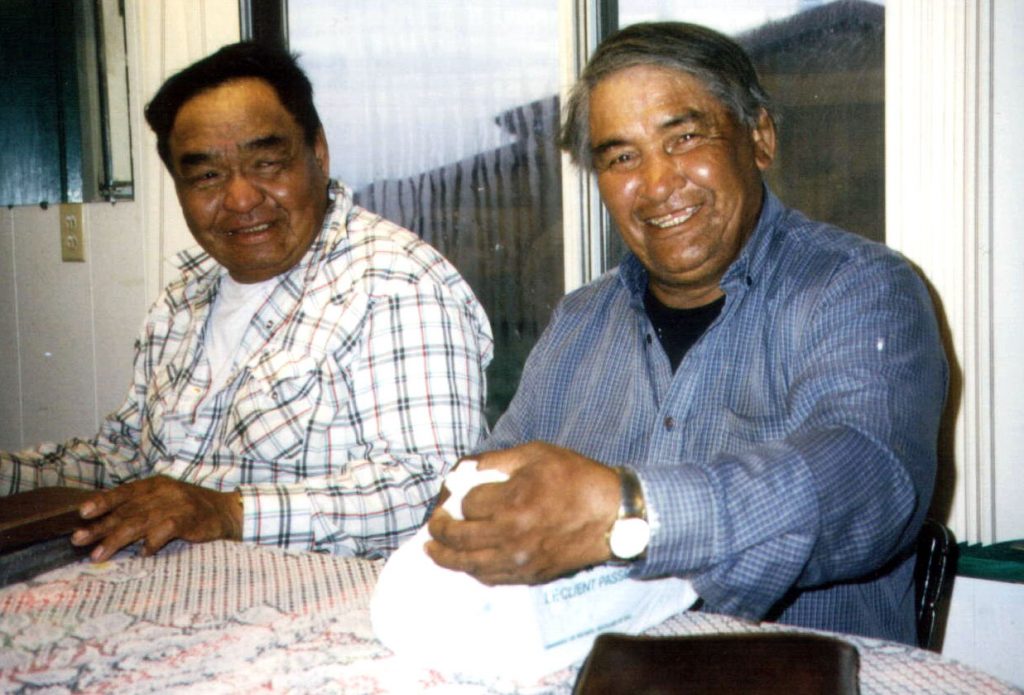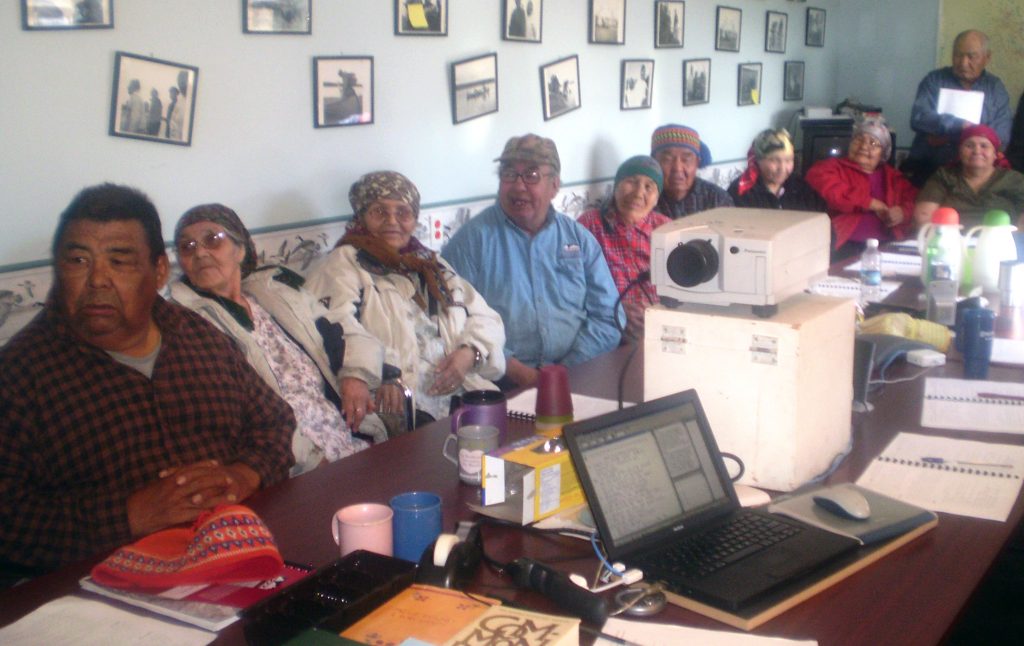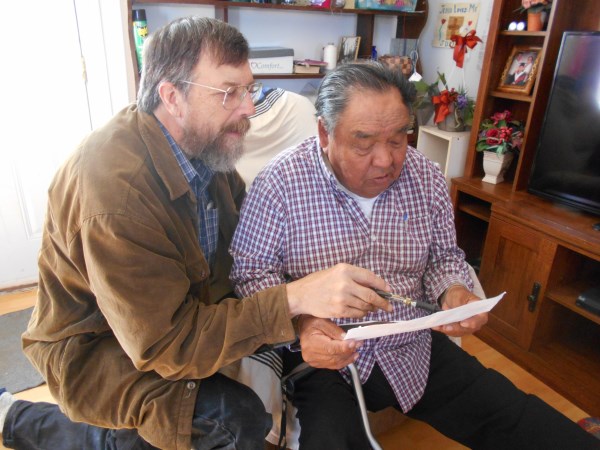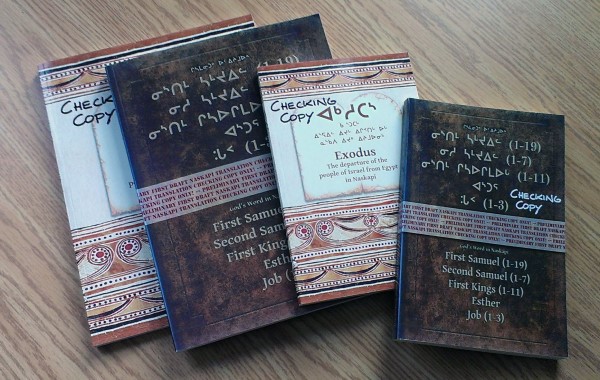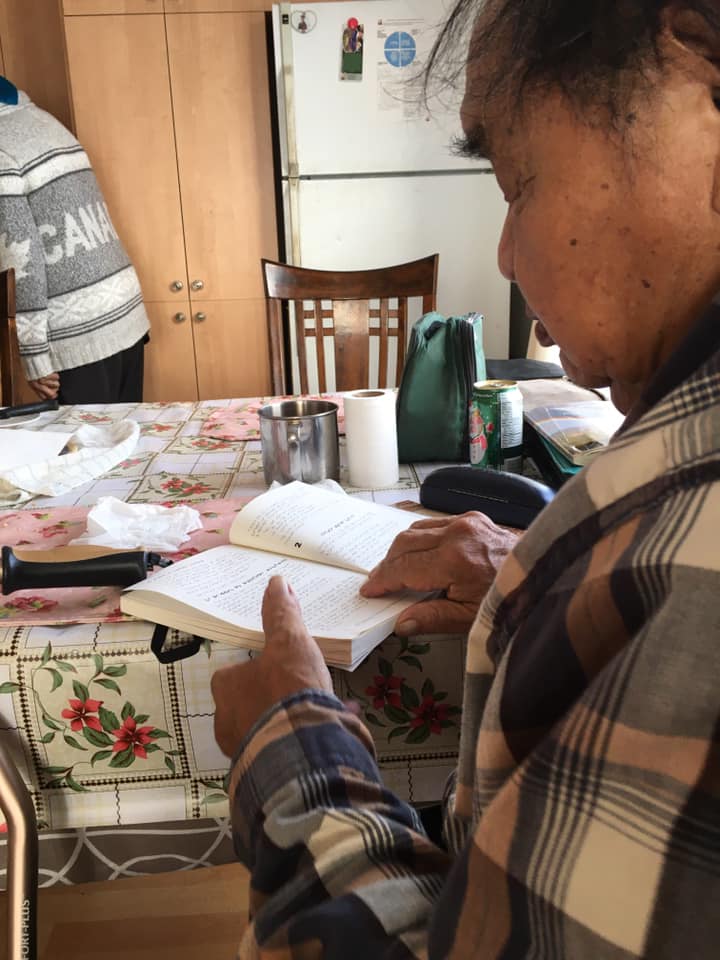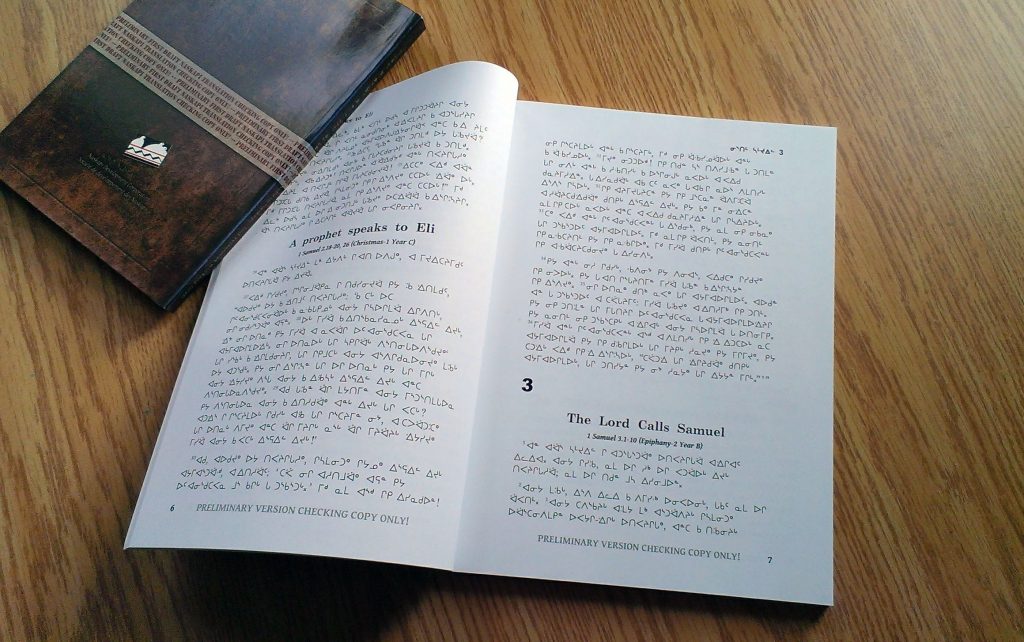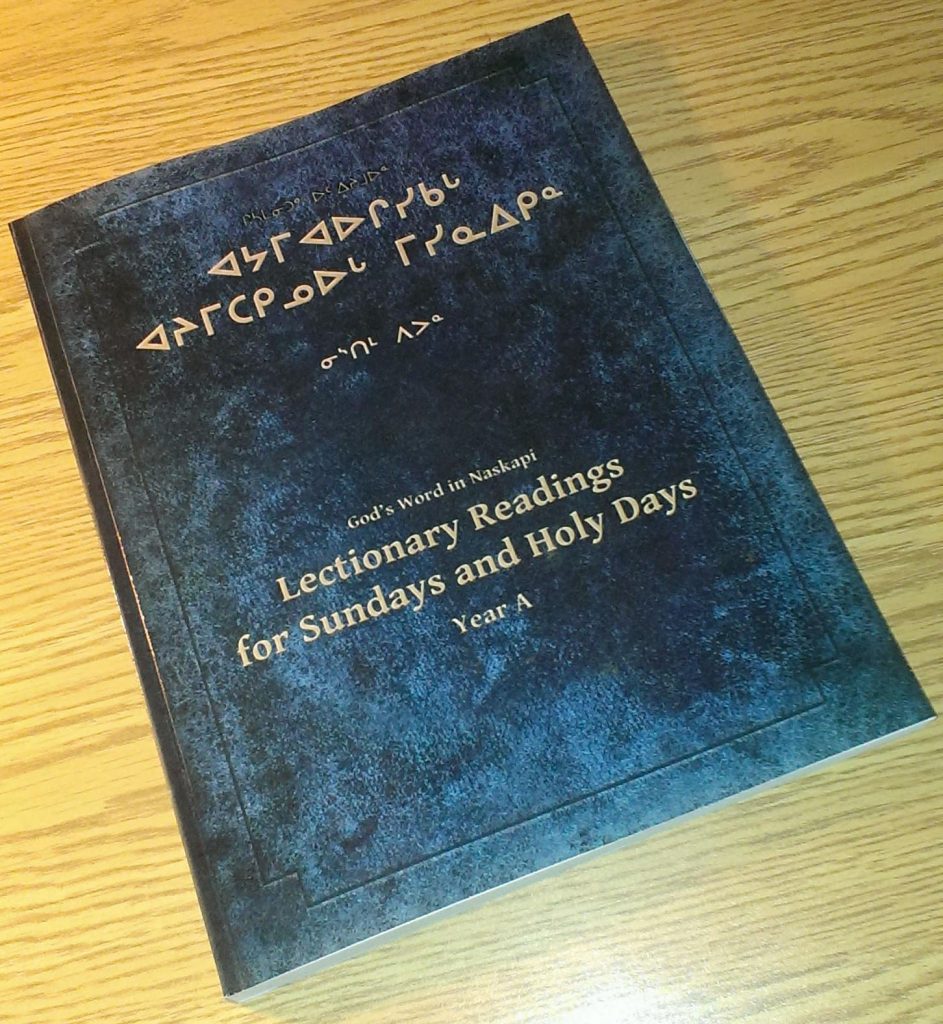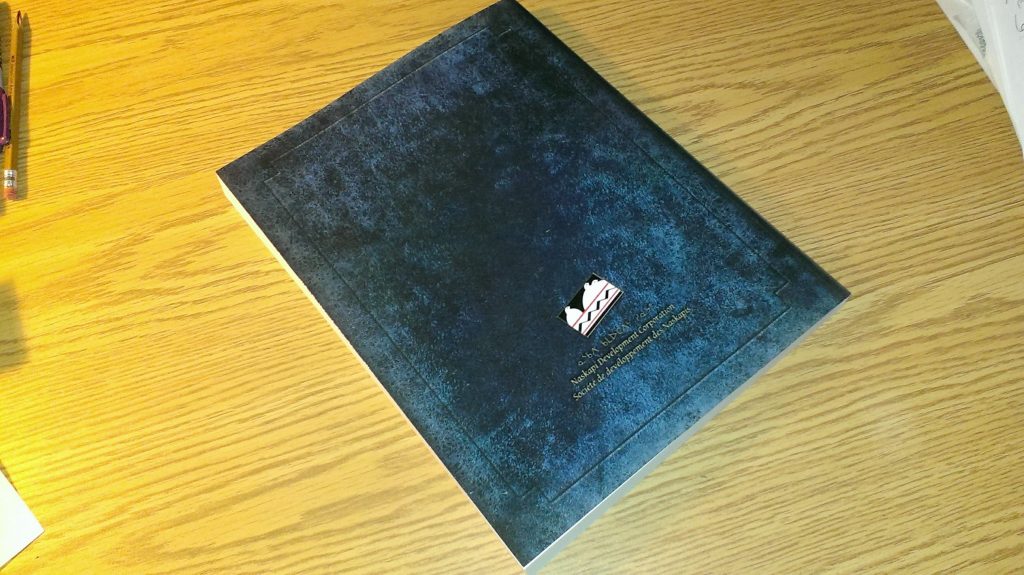In the early spring of 2019, the Naskapi church and community celebrated the publication and dedication of the book of Psalms in the Naskapi language. It was printed in regular and large-print sizes, in paperback and hardcover. You can read the story about that celebration in our Northern Translation Brief at this link.
At the local Naskapi language radio station, for years there has been a regular program of Naskapi language Bible readings broadcast in the community. It began with readings from the book of Genesis in 2004 by the late elder Joseph Guanish. When the Naskapi New Testament was published in 2007, we were completing the collection of Gospels and Epistles, and releasing these for radio airplay as they were finished. The collection of radio programs included the entire New Testament by 2008.
Last year, when the Naskapi book of Exodus was published, all of the Exodus radio programs were also completed and released simultaneously at the Exodus dedication. But the audio recording of the Psalms, the longest book* in the Bible, was still a work in progress.
The book of Psalms
150 chapters
2461 verses
20,225 words (in Naskapi)
395 minutes (of reading in Naskapi, or about 6-1/2 hours)* In the Hebrew Bible, Jeremiah and Genesis have a slightly greater number of words than the Psalms, but Psalms has, by far, the most verses and chapters. In any case, it’s a substantial work however you count it.
During the Covid-19 pandemic, Silas Nabinicaboo, one of the Naskapi translators, worked with me over Zoom and we devised a method of producing a good quality digital recording of the reading of the scriptures. In March of 2021, Silas began to record the book of Psalms, starting with Psalm 1. He was able to complete several chapters at a sitting, when they were short ones.
By August 2021, we celebrated Silas completing the recording of Psalm 75, halfway through.
By October 2021, Silas completed the “raw” recording of the entire book of Psalms: this took about 9 months altogether.
A “raw” original recording is what you get when you read into a recorder. If the phone rings, or there’s a knock at the door, all of these things get recorded. If you cough, or stutter or mispronounce inadvertently, all of these sounds are recorded as well. So the recording goes through a careful editing process, during which we listen to each chapter, and compare what is heard on the recording with the words that are actually on the translated page. We “edit” the sounds by removing all the noises, corrections and false starts. Silas is a good reader, and he very faithfully would repeat a phrase or a line or an entire verse in the “raw” recording until he got it right.
I began to edit the audio files for the book of Psalms as soon as Silas had completed the first chapter, in March of 2021. But his recording progress outpaced my editing work.
By August 2021, I had completed the editing and mastering for the first 25 Psalms, and these were delivered to Naskapi Radio for airplay as two 30-minute radio programs.
By January 2022, I had finished two more radio programs, which included all the Psalms up to Psalm 44.
Fitting in the audio editing and mastering tasks in between other language project work and responsibilities, I was able to complete the Naskapi Psalms radio programs up through Psalm 93 by January of 2023.
And now (January 2024), I completed the rest of the book, finishing the audio for all 150 Psalms in Naskapi, presented in 15 separate 30-minute radio programs.
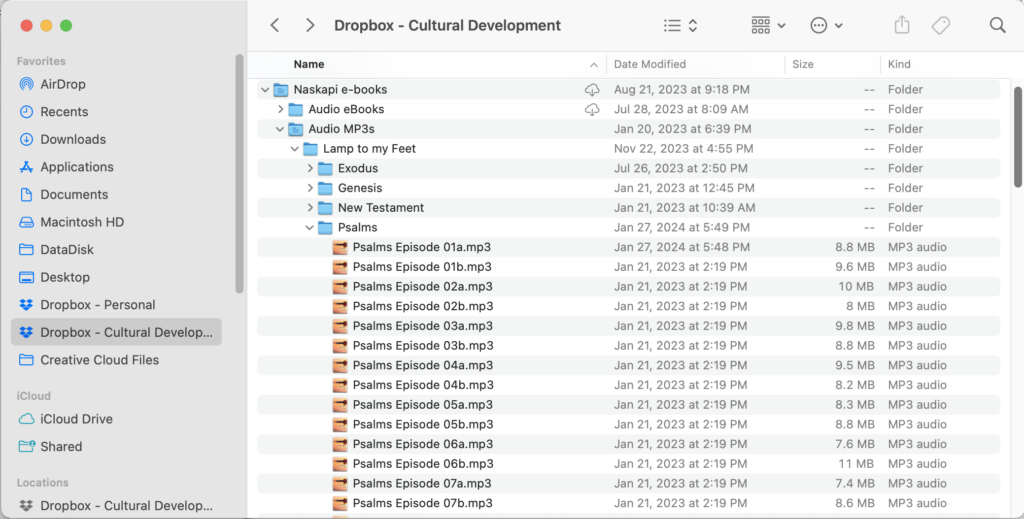 Besides being played on-air on the local Naskapi radio station, all of the Naskapi Bible reading episodes are available to download on the Internet and played as “podcasts” on people’s phones, tablets and computers. The link is shared on the Naskapi Radio Facebook page, but if you care to have a listen yourself, you can click this link for the whole collection.
Besides being played on-air on the local Naskapi radio station, all of the Naskapi Bible reading episodes are available to download on the Internet and played as “podcasts” on people’s phones, tablets and computers. The link is shared on the Naskapi Radio Facebook page, but if you care to have a listen yourself, you can click this link for the whole collection.
It is our usual practice to train others to gain the skills and capacity to do the technical language-project related work. In that spirit, I have created a YouTube “How To” video to help train other Naskapi speakers to do the audio editing process and prepare Scripture radio programs and podcasts. You can sample this video yourself at this link.
Thank you for celebrating this milestone of the Naskapi language having access to the entire book of Psalms read aloud in their language. Thank you for praying for us, as we note this answer to your prayers, with the book of Psalms joining the growing collection of the Scriptures accessible in Naskapi, along with the New Testament, Genesis and Exodus.
Please continue to pray for us and our ongoing work with the Naskapi team, working on:
- Consultant-checking the book of Judges
- First Draft on the book of 1 Kings
- Second edition revision of the Naskapi Dictionary
- Ongoing capacity-building, curriculum development and Naskapi literacy and teacher-training
Serving with you,
Bill and Norma Jean Jancewicz

